12+ Ways To Cut Down Your Carbon Footprint
By Ange Arnal
2 years ago
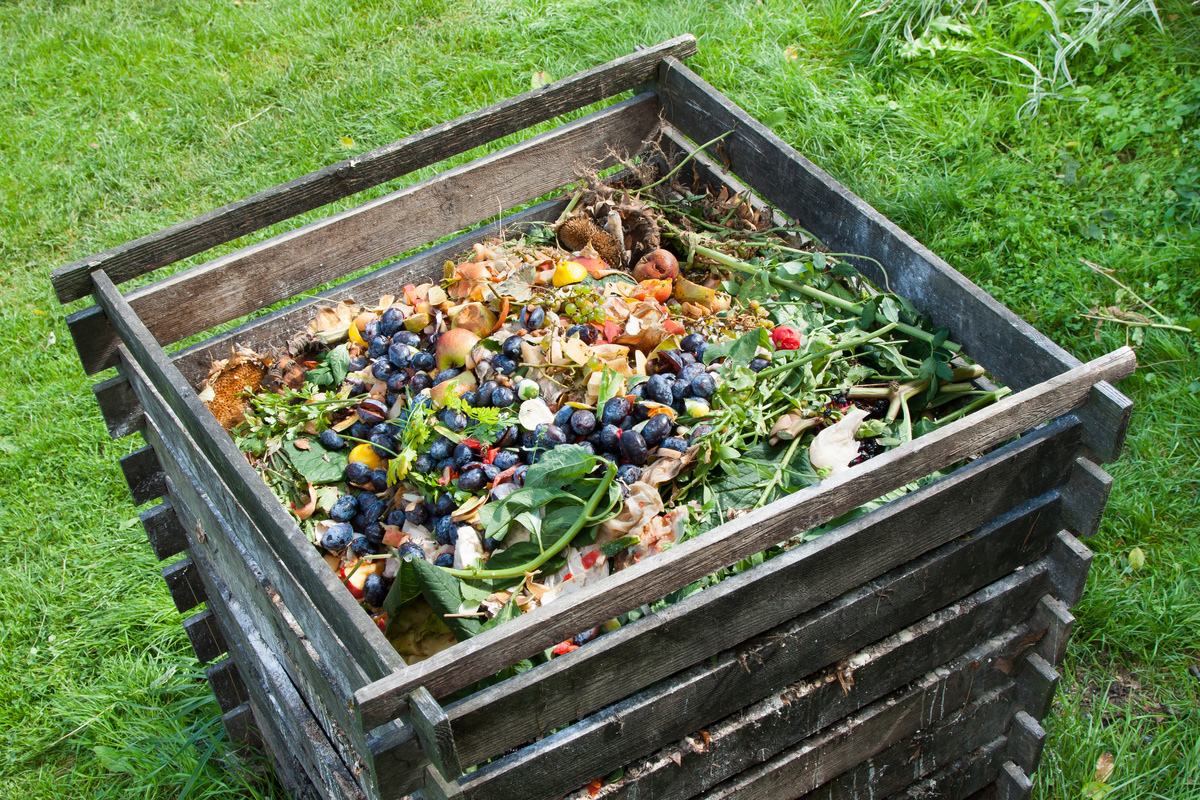 imagesource/lawnstarterComposting helps to reduce the greenhouse gas emissions that come from decomposition or organic matter that takes place in landfills all over the world. You can start by collecting all of your food scraps and storing them in your freezer and if you live in an apartment block, you could try to start your own composting neighbourhood.
imagesource/lawnstarterComposting helps to reduce the greenhouse gas emissions that come from decomposition or organic matter that takes place in landfills all over the world. You can start by collecting all of your food scraps and storing them in your freezer and if you live in an apartment block, you could try to start your own composting neighbourhood.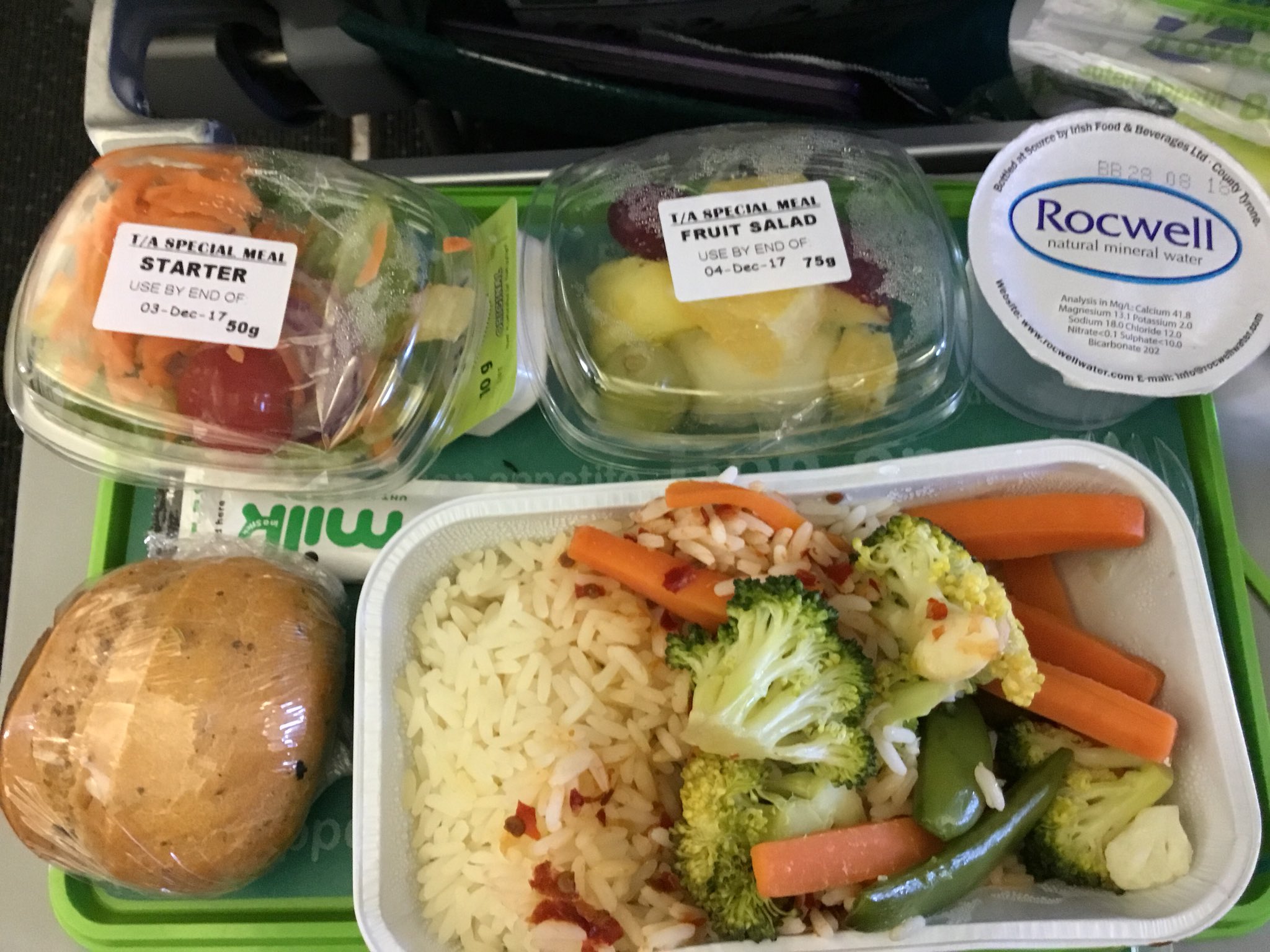 imagesource/twitterWe've all heard about how cutting out meat from our diet will be better for the environment, but realistically, who wants to actually do that? Plus it's not the right thing for everyone. Why not just try Meatless Monday? It's a program where you get discount for purchasing veggie meals.
imagesource/twitterWe've all heard about how cutting out meat from our diet will be better for the environment, but realistically, who wants to actually do that? Plus it's not the right thing for everyone. Why not just try Meatless Monday? It's a program where you get discount for purchasing veggie meals. imagesource/twitterBuying locally sourced food reduces emissions that it takes to transport the food from your grocery store or restaurants and a lot of greenhouse gas emissions come from transportation. Here's an easy way for you to do you part.
imagesource/twitterBuying locally sourced food reduces emissions that it takes to transport the food from your grocery store or restaurants and a lot of greenhouse gas emissions come from transportation. Here's an easy way for you to do you part.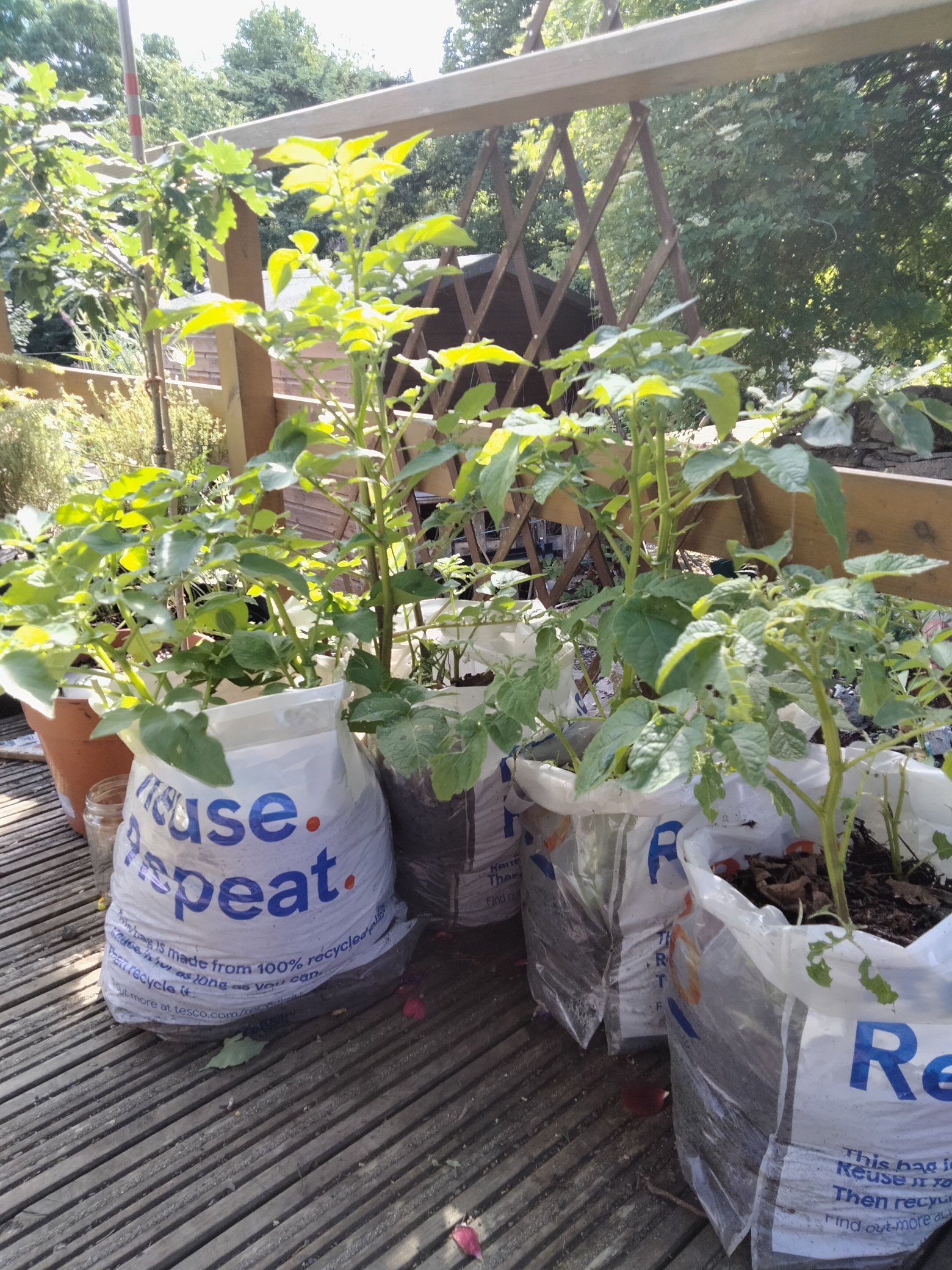 imagesource/twitterAgain, here's an easy way for you to cut out emissions. If you grow your own food you basically eliminate the emissions that come from transporting the goods. You can build your own garden very easily, they're a great way to keep yourself busy and they're sustainable.
imagesource/twitterAgain, here's an easy way for you to cut out emissions. If you grow your own food you basically eliminate the emissions that come from transporting the goods. You can build your own garden very easily, they're a great way to keep yourself busy and they're sustainable.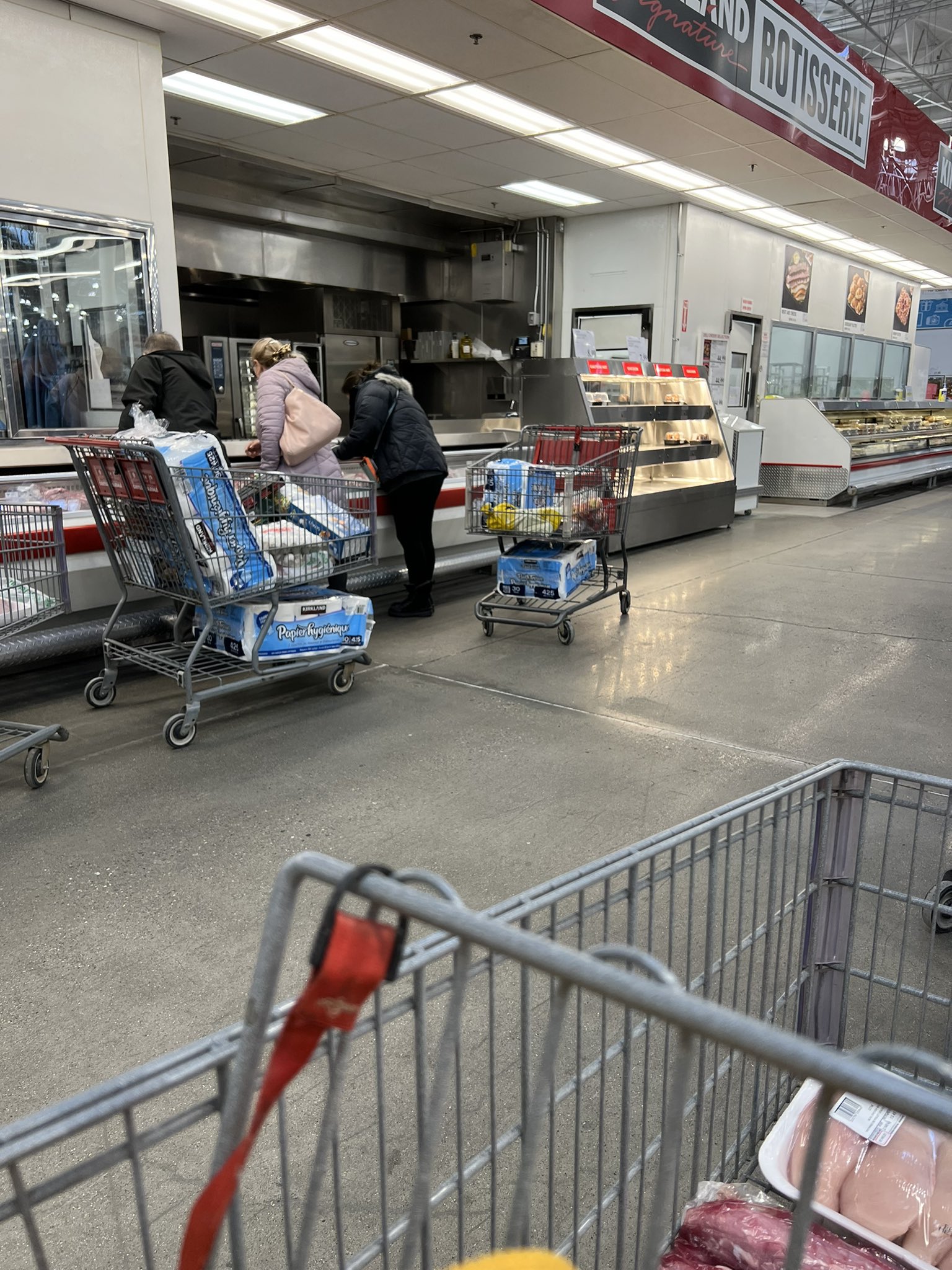 imagesource/twitterHow many times have you bought a load of food and its gone to waste? It happens all the time! Try not to bulk buy unless you know for definite that you'll be able to eat it in time before it goes out of date. If not, just buy bits and bobs as you go along, which decreases your carbon footprint.
imagesource/twitterHow many times have you bought a load of food and its gone to waste? It happens all the time! Try not to bulk buy unless you know for definite that you'll be able to eat it in time before it goes out of date. If not, just buy bits and bobs as you go along, which decreases your carbon footprint. imagesource/twitterA bee will only produce a teaspoon of honey in it's lifetime which means mass produced honey you see in grocery stores is made by artificially inseminating bees to produce more honey. It's an inhumane practice and it's causing the species to die at an alarmingly fast rate.
imagesource/twitterA bee will only produce a teaspoon of honey in it's lifetime which means mass produced honey you see in grocery stores is made by artificially inseminating bees to produce more honey. It's an inhumane practice and it's causing the species to die at an alarmingly fast rate. imagesource/pintrestSome produce requires a lot of energy to get to your local grocery store so to help cut down emissions from transportation, why not just shop for food thats in season. There are plenty of websites available to scroll to help you find out what is and isn't in season.
imagesource/pintrestSome produce requires a lot of energy to get to your local grocery store so to help cut down emissions from transportation, why not just shop for food thats in season. There are plenty of websites available to scroll to help you find out what is and isn't in season.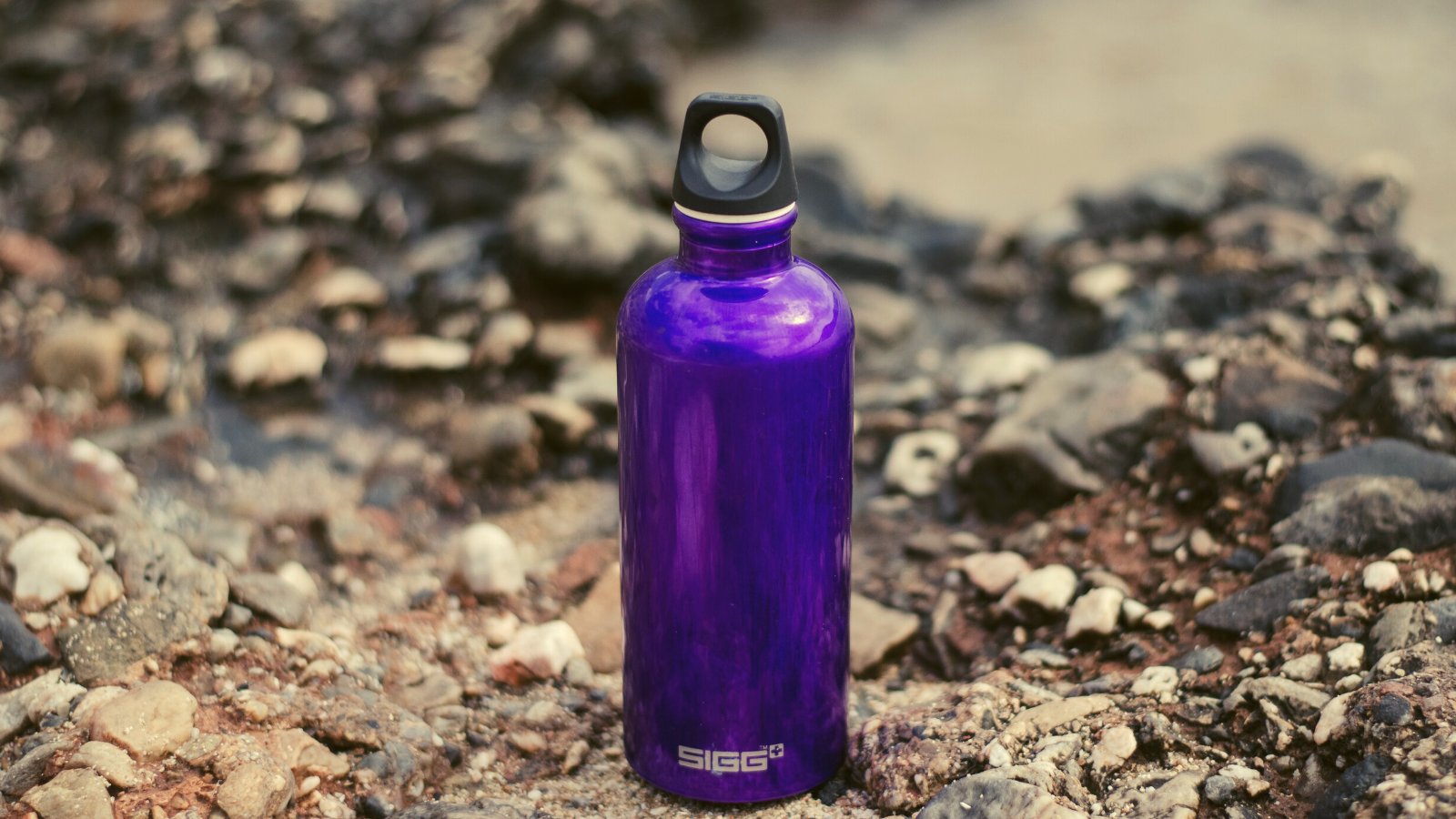 imagesource/twitterRather than buy bottled water, then throw the bottles away, get yourself reusable water bottle that you can use everyday. Plastic production leads to large carbon emissions, so you'll really be doing your part when it comes to lowering your water and carbon footprint!
imagesource/twitterRather than buy bottled water, then throw the bottles away, get yourself reusable water bottle that you can use everyday. Plastic production leads to large carbon emissions, so you'll really be doing your part when it comes to lowering your water and carbon footprint! imagesource/twitterA shower uses around 2.5 gallons of water per minute, so cutting your shower time down by 5 to 10 minutes can save 12 to 25 gallons of water per shower. This will help your lower your carbon footprint by eliminating unnecessary water pumping and heating.
imagesource/twitterA shower uses around 2.5 gallons of water per minute, so cutting your shower time down by 5 to 10 minutes can save 12 to 25 gallons of water per shower. This will help your lower your carbon footprint by eliminating unnecessary water pumping and heating.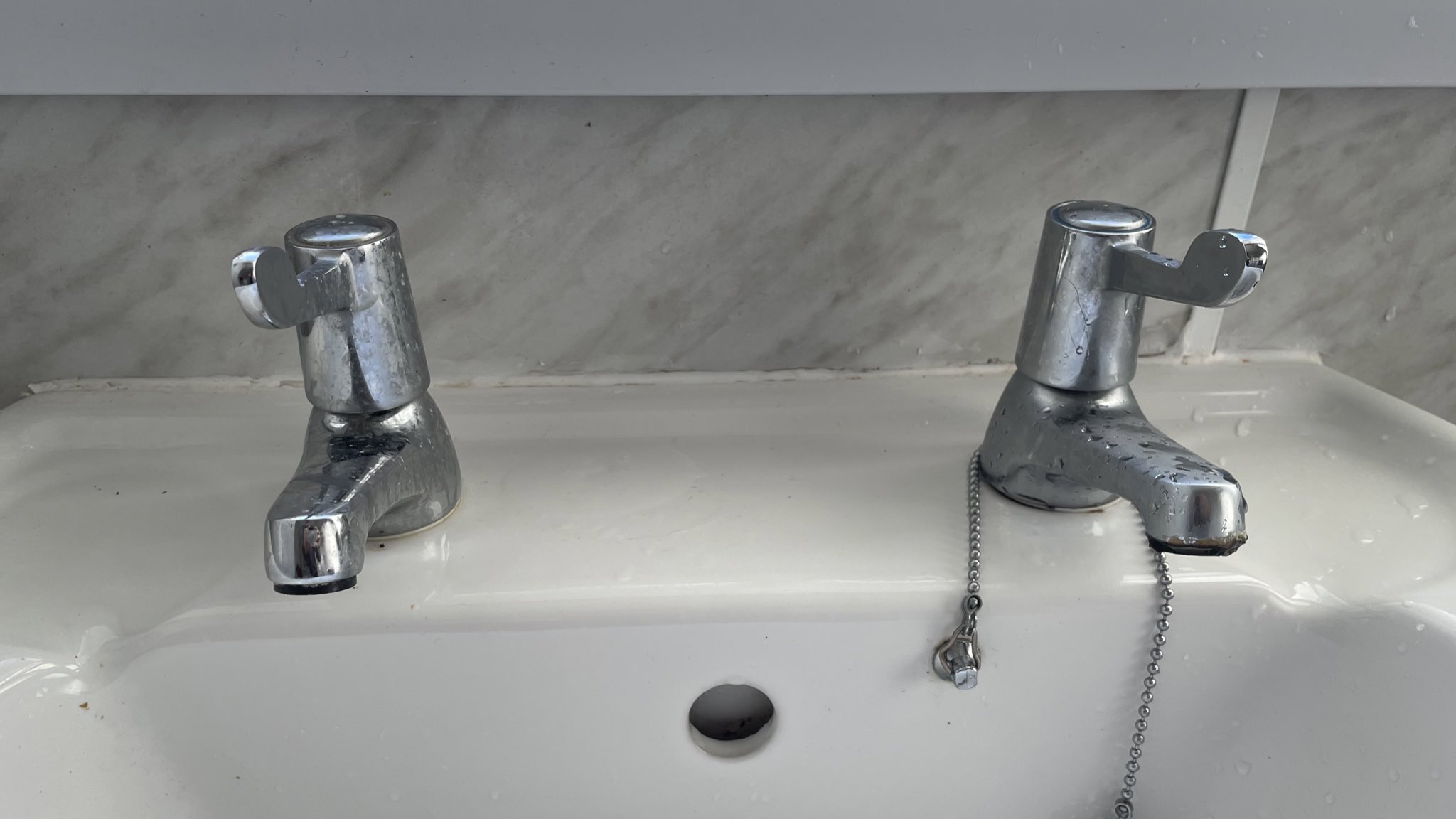 imagesource/twitterBy washing your clothes, dishes, whatever, in cold water, you can save yourself a lot of energy. Make sure that you're using your hot water wisely and that you always take the leftover water from your kettle to wash your dishes too. it's an easy trick to save on your bills and your carbon footprint.
imagesource/twitterBy washing your clothes, dishes, whatever, in cold water, you can save yourself a lot of energy. Make sure that you're using your hot water wisely and that you always take the leftover water from your kettle to wash your dishes too. it's an easy trick to save on your bills and your carbon footprint.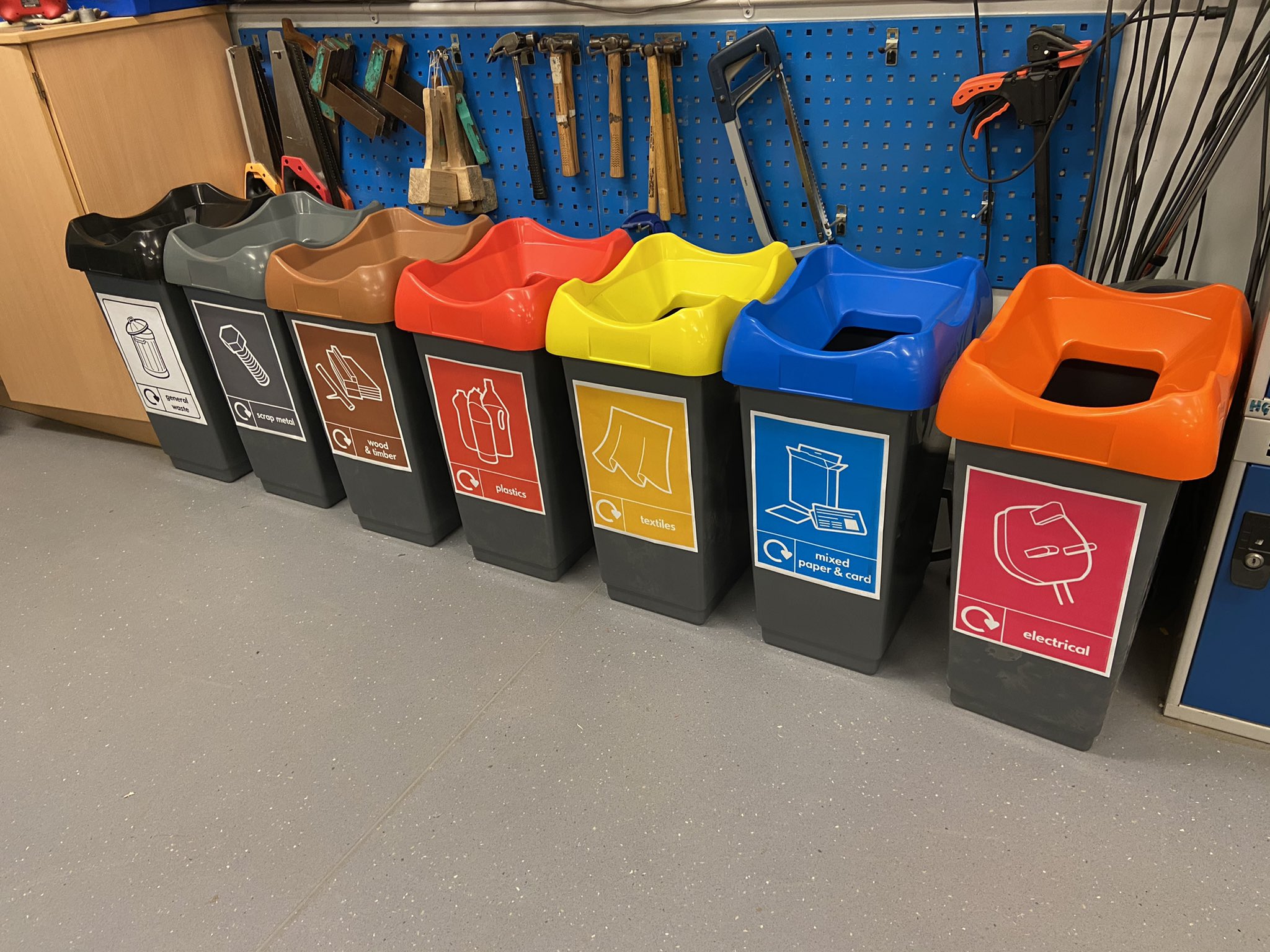 imagesource/twitterRecycling your materials and composting are two of the easiest and best ways to reduce your carbon footprint. If you put your food scraps in a personal compost pile, you instantly reduce your footprint at home, without even really doing anything!
imagesource/twitterRecycling your materials and composting are two of the easiest and best ways to reduce your carbon footprint. If you put your food scraps in a personal compost pile, you instantly reduce your footprint at home, without even really doing anything! imagesource/leicestermercuryIf you still have those old school lightbulbs in, then what are you doing with your life? Old light bulbs and incandescent light bulbs take up a lot of excess energy, so make sure to replace them with LED lights that can conserve thousands of watts of energy per year.
imagesource/leicestermercuryIf you still have those old school lightbulbs in, then what are you doing with your life? Old light bulbs and incandescent light bulbs take up a lot of excess energy, so make sure to replace them with LED lights that can conserve thousands of watts of energy per year. imagesource/homeserveBy having your home insulated, it will help control your indoor climate so you stay warm easier in the winter, meaning you won't feel the need to put the heating on as early on in the year, saving you some money and lowering your carbon footprint. Perfect.
imagesource/homeserveBy having your home insulated, it will help control your indoor climate so you stay warm easier in the winter, meaning you won't feel the need to put the heating on as early on in the year, saving you some money and lowering your carbon footprint. Perfect.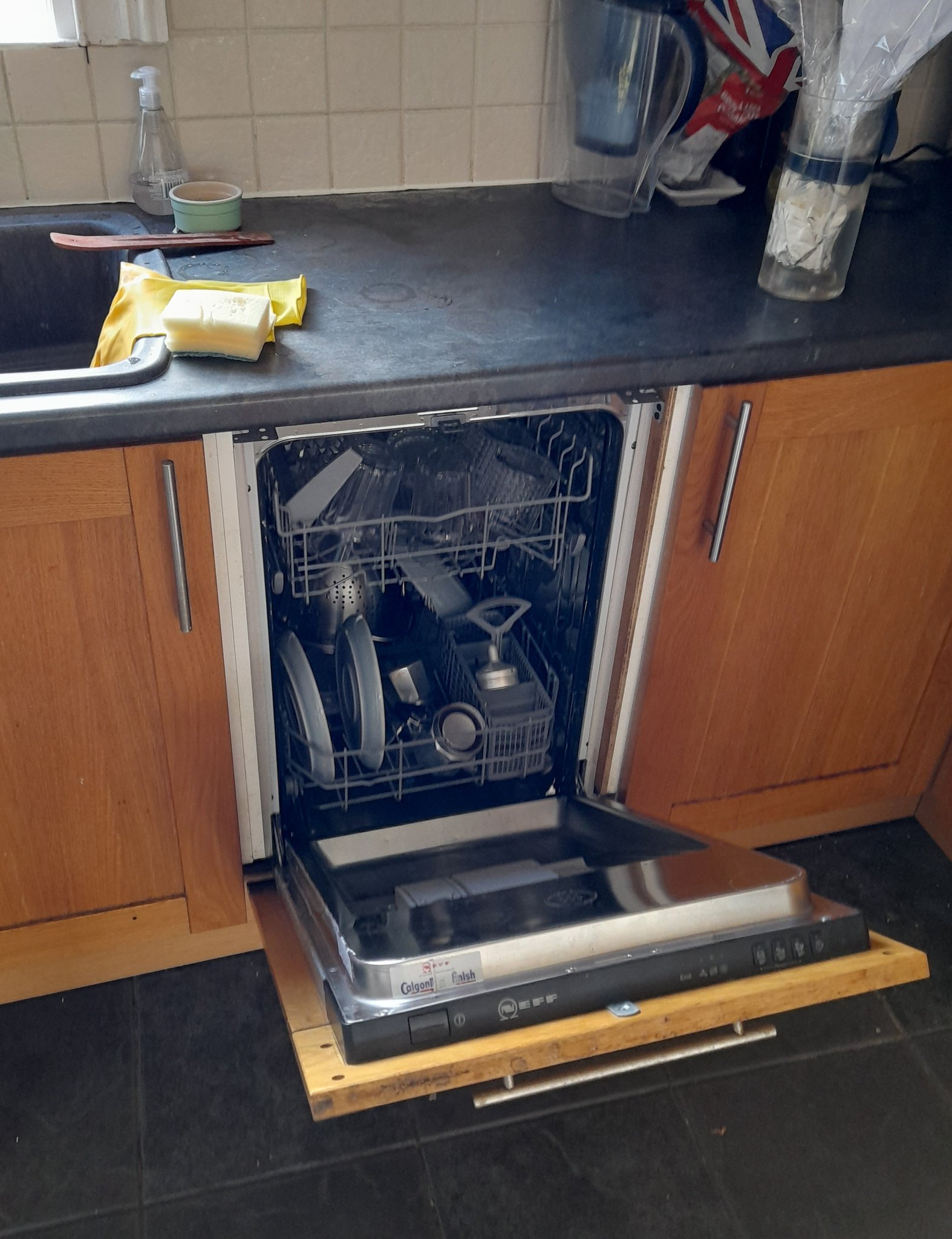 imagesource/twitterYou use two gallons of water every minute, just from washing your dishes, but only 4-6 gallons per dishwasher cycle. So it makes complete sense really. You can wash a lot more dishes and use half the amount of water whilst doing it. So think about switching over to dishwashing over hand washing.
imagesource/twitterYou use two gallons of water every minute, just from washing your dishes, but only 4-6 gallons per dishwasher cycle. So it makes complete sense really. You can wash a lot more dishes and use half the amount of water whilst doing it. So think about switching over to dishwashing over hand washing.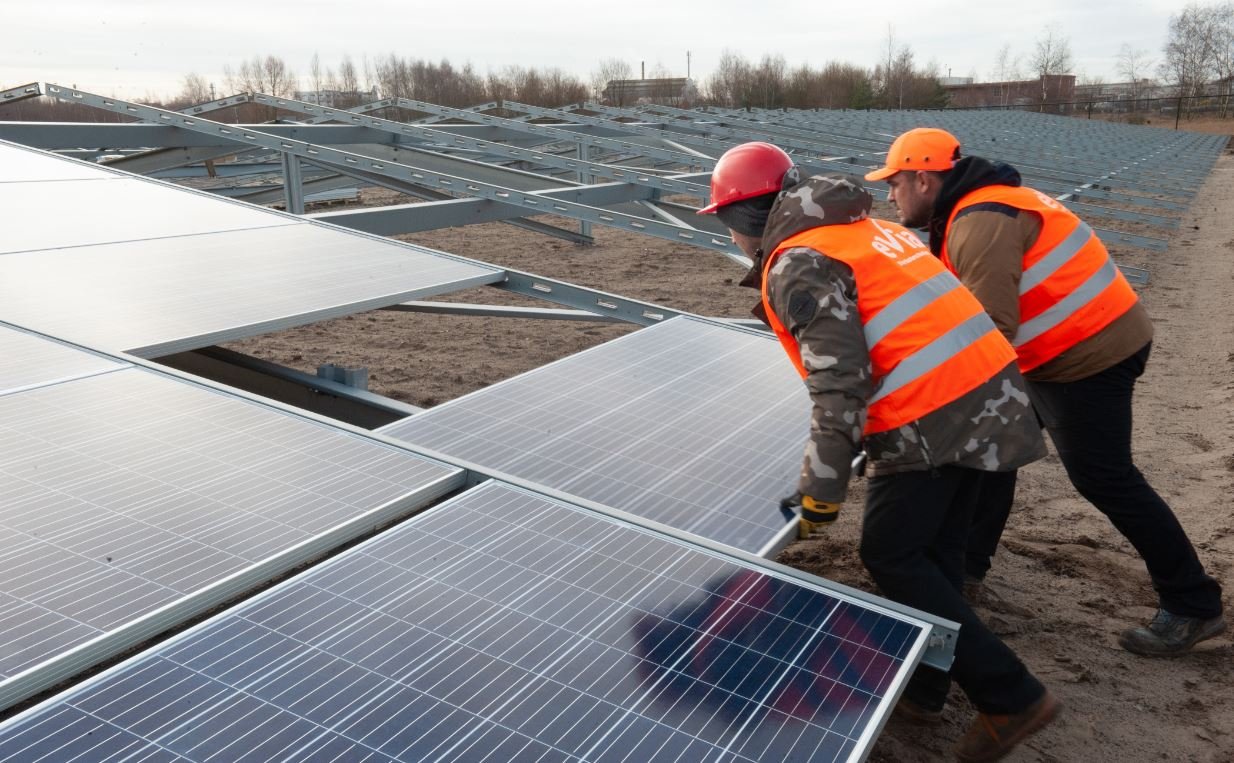 imagesource/twitterGoing solar can save you tonnes of money per year as well as reducing your carbon footprint by a lot. By installing solar panels, you could potentially save up to 100% of your electricity usage depending on how many you have installed.
imagesource/twitterGoing solar can save you tonnes of money per year as well as reducing your carbon footprint by a lot. By installing solar panels, you could potentially save up to 100% of your electricity usage depending on how many you have installed.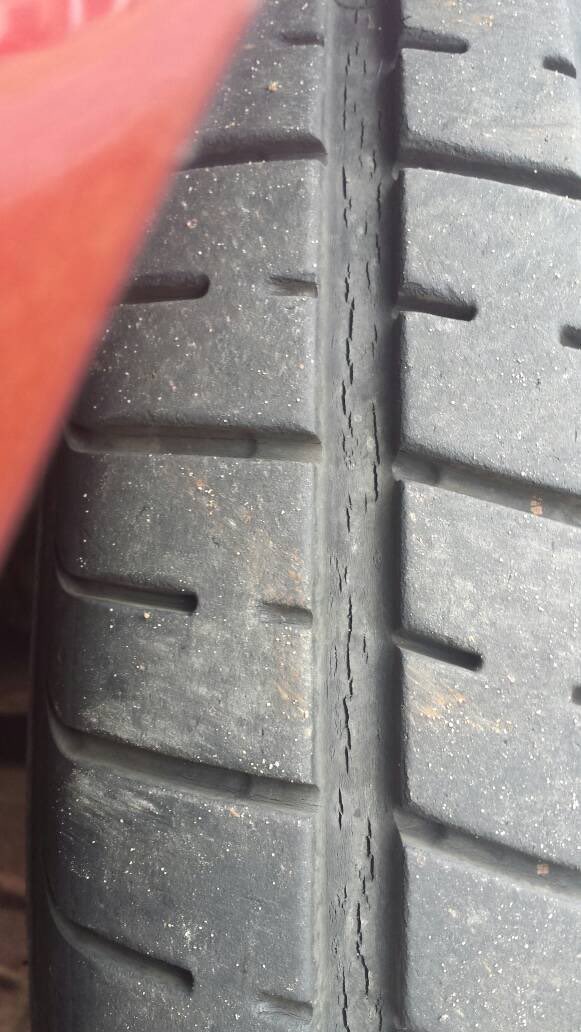 imagesource/twitterWhen it comes to your car tyres, flat or flattening tyres can hurt your gas mileage. With new tyres you can maximise your miles per gallon, so much so that it could affect your carbon footprint - in a good way of course! For every gallon of gas saved, 20 pounds of CO2 won't be released into the atmosphere.
imagesource/twitterWhen it comes to your car tyres, flat or flattening tyres can hurt your gas mileage. With new tyres you can maximise your miles per gallon, so much so that it could affect your carbon footprint - in a good way of course! For every gallon of gas saved, 20 pounds of CO2 won't be released into the atmosphere. imagesource/twitterSay you're taking the kids to school every morning, why not carpool and take some of their friends and vice versa. Depending on how often you carpool and the distance you drive, you could save yourself thousands of dollars and gallons of gas per year.
imagesource/twitterSay you're taking the kids to school every morning, why not carpool and take some of their friends and vice versa. Depending on how often you carpool and the distance you drive, you could save yourself thousands of dollars and gallons of gas per year. imagesource/twitterIf you live in an area where public transport in accessible, then make sure you use it as much as possible. You can drastically increase your energy savings and reduce the number of cars on the road. Just think about how much nicer it would be not getting stuck in the rush hour traffic.
imagesource/twitterIf you live in an area where public transport in accessible, then make sure you use it as much as possible. You can drastically increase your energy savings and reduce the number of cars on the road. Just think about how much nicer it would be not getting stuck in the rush hour traffic. imagesource/huffpostInstead of travelling to work meetings why not connect with people online with services like Skype, Google Meeting Rooms and Facetime? We all got so used to it during the Pandemic, why not carry it on and save on your carbon footprint.
imagesource/huffpostInstead of travelling to work meetings why not connect with people online with services like Skype, Google Meeting Rooms and Facetime? We all got so used to it during the Pandemic, why not carry it on and save on your carbon footprint.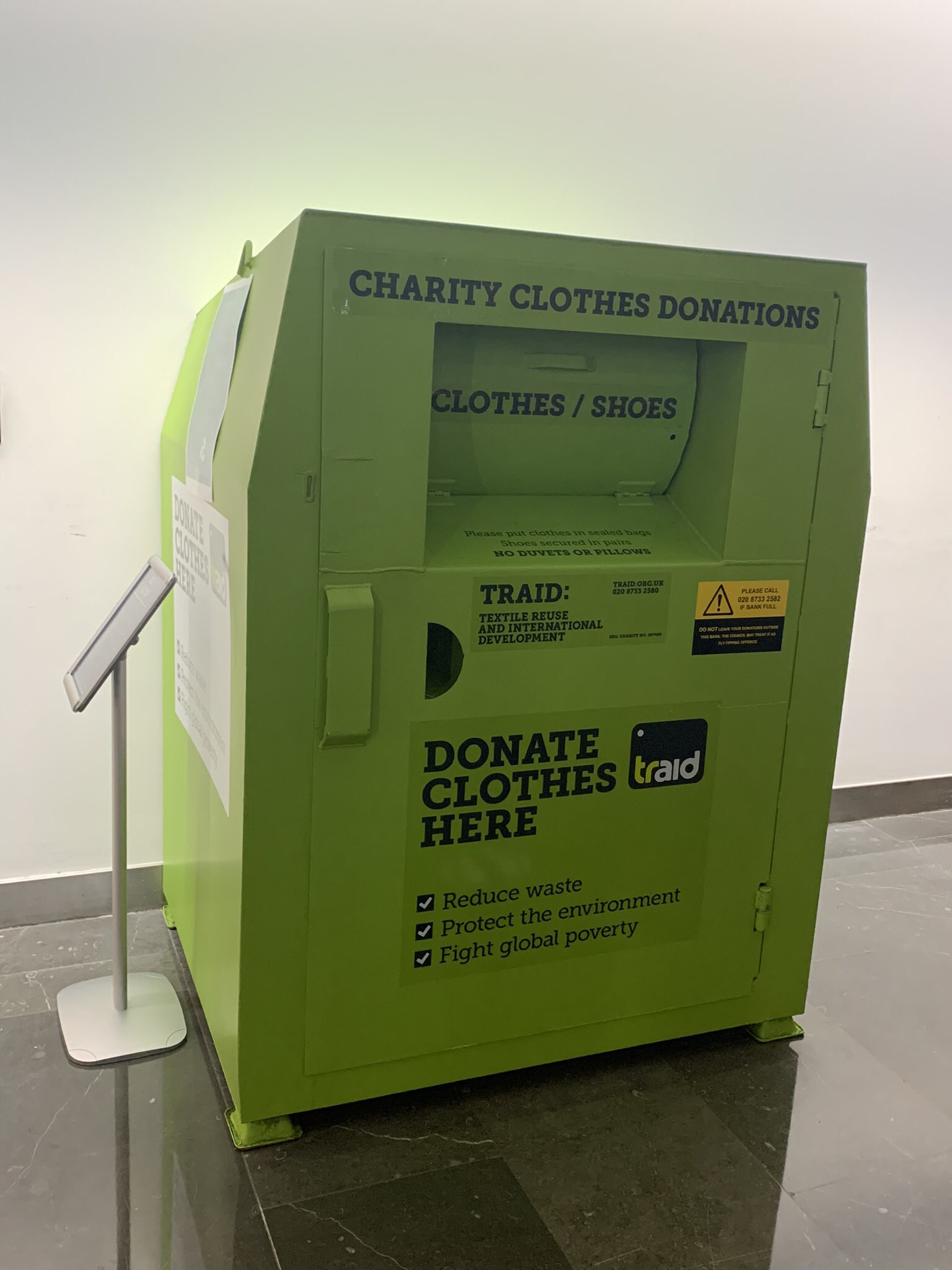 imagesource/twitterYou can donate your old clothes to charity shops, or even sell them off on ebay. H&M launched a garment collection program back in 2013 where they let you drop off and recycle clothing in any condition to any H&M store around the world.
imagesource/twitterYou can donate your old clothes to charity shops, or even sell them off on ebay. H&M launched a garment collection program back in 2013 where they let you drop off and recycle clothing in any condition to any H&M store around the world. imagesource/twitterHave you never gone to a thrift store to buy second hand clothing? You should really try it and with more and more second hand stores cropping up, this could be your perfect time to try them out. There are also plenty of online stores where you can rent clothing for special occasions.
imagesource/twitterHave you never gone to a thrift store to buy second hand clothing? You should really try it and with more and more second hand stores cropping up, this could be your perfect time to try them out. There are also plenty of online stores where you can rent clothing for special occasions.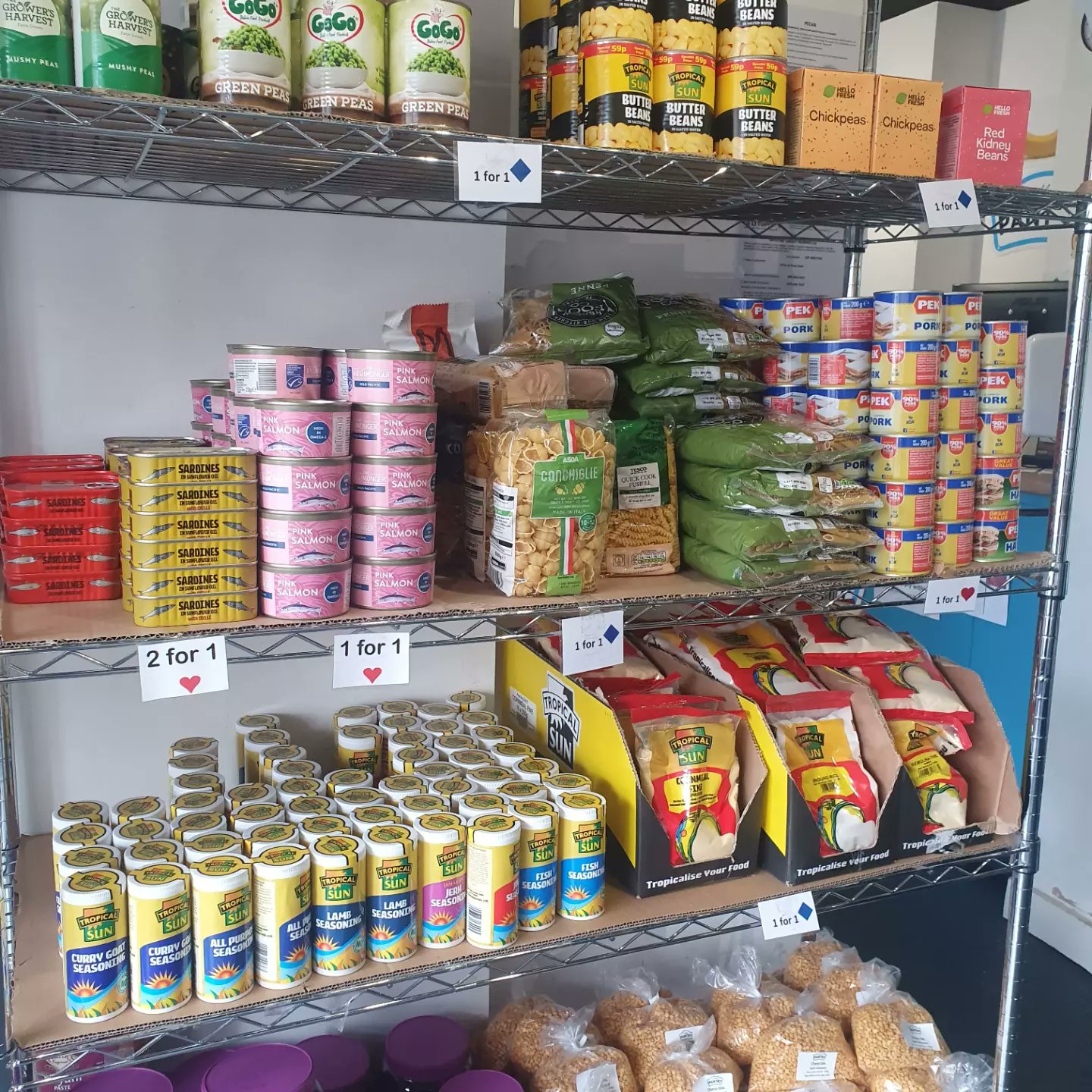 imagesource/twitterInstead of always buying clothes, get into the routine of rewearing your clothes for certain occasions. Try shopping for only things that you actually need, with occasional treats. This will eliminate the wasted energy used to make uneccesary purchases - fast fashion should be a no go!
imagesource/twitterInstead of always buying clothes, get into the routine of rewearing your clothes for certain occasions. Try shopping for only things that you actually need, with occasional treats. This will eliminate the wasted energy used to make uneccesary purchases - fast fashion should be a no go! imagesource/sopitasEvery ingredient in what you eat, you should be able to pronounce and if you can't then stop buying it! Everything you wear and eat should be healthy, use natural cleansers and moisturisers such a handmade soaps and coconut oil - this will cut down on your carbon emissions.
imagesource/sopitasEvery ingredient in what you eat, you should be able to pronounce and if you can't then stop buying it! Everything you wear and eat should be healthy, use natural cleansers and moisturisers such a handmade soaps and coconut oil - this will cut down on your carbon emissions.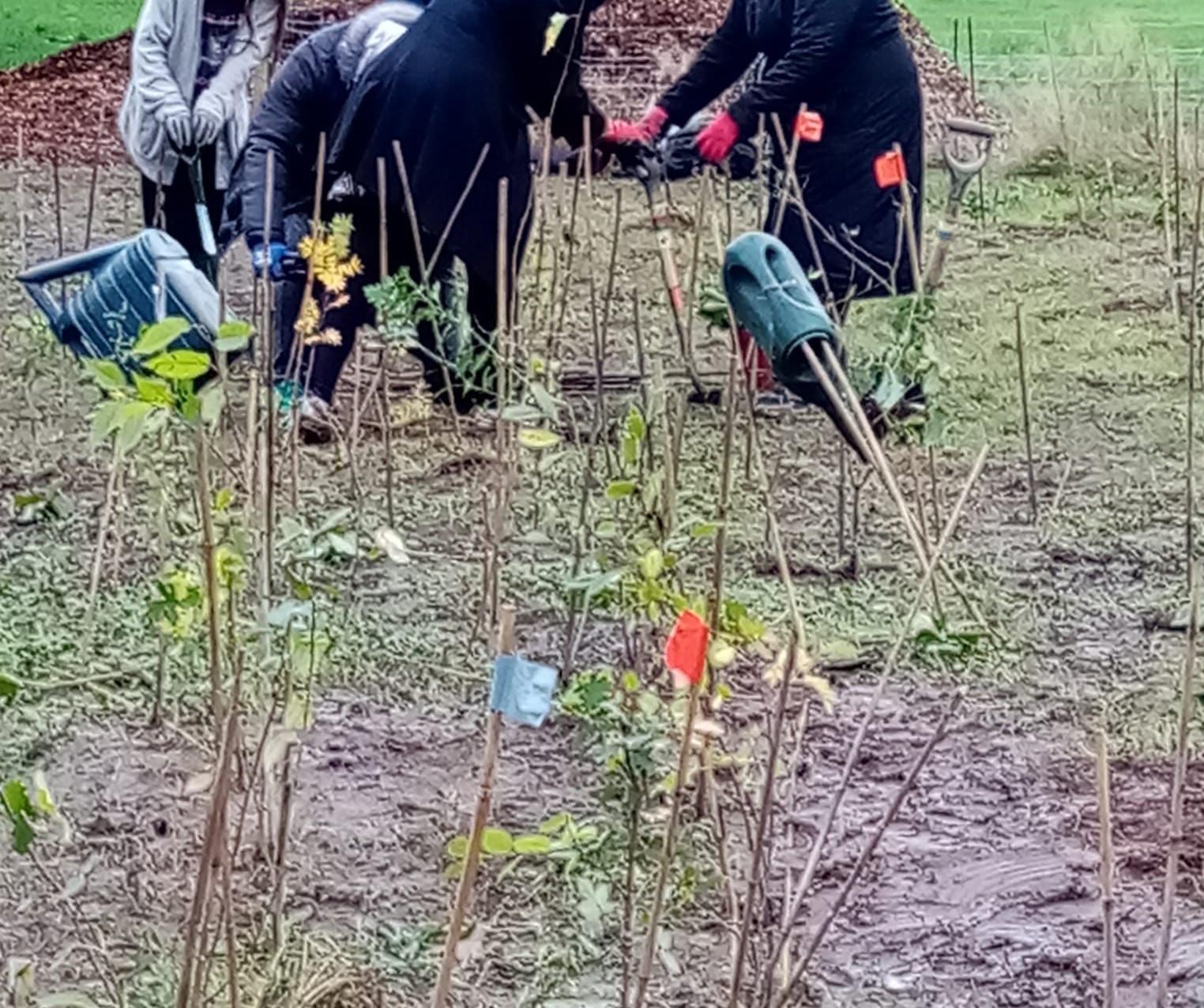 imagesource/twitterThis one is a slightly larger task but if you come together as a community, this could be a lot easier. Plant trees if your local parks, this could make a big impact. Our carbon emissions by planting trees will massively help cut down on your footprint, so if you want to get out and do your part, this could be the ideal thing for you to do.
imagesource/twitterThis one is a slightly larger task but if you come together as a community, this could be a lot easier. Plant trees if your local parks, this could make a big impact. Our carbon emissions by planting trees will massively help cut down on your footprint, so if you want to get out and do your part, this could be the ideal thing for you to do. imagesource/twitterWe should all be supporting local businesses, but always try to buy from local businesses instead of wasteful big stores. This will not only help support your local co-op pharmacies and restaurants but you'll also be helping to reduce waste.
imagesource/twitterWe should all be supporting local businesses, but always try to buy from local businesses instead of wasteful big stores. This will not only help support your local co-op pharmacies and restaurants but you'll also be helping to reduce waste.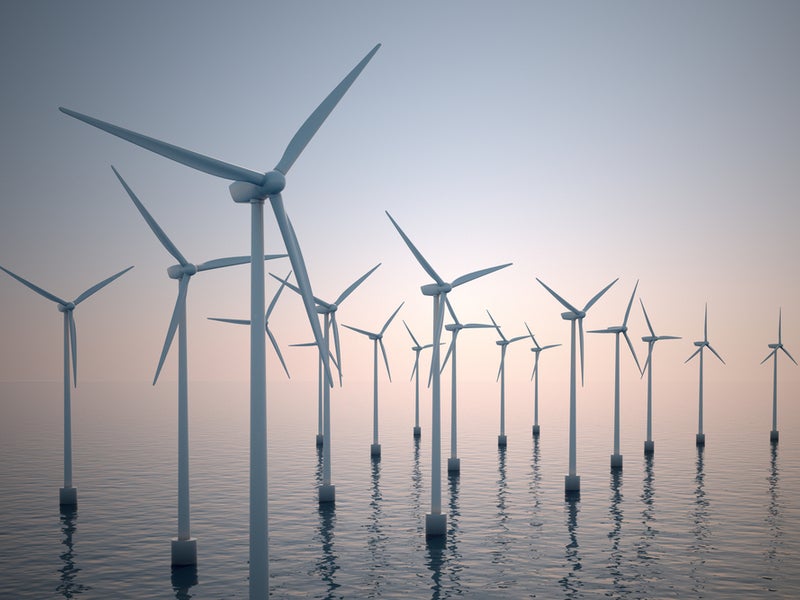 imagesource/powertechnologyThis one could be the quickest and easiest way for your to reduce your carbon footprint and it takes 2 minutes from the comfort of your own home. Sign your house or apartment for clean energy with Arcadia, it's nice and easy so why the hell not?
imagesource/powertechnologyThis one could be the quickest and easiest way for your to reduce your carbon footprint and it takes 2 minutes from the comfort of your own home. Sign your house or apartment for clean energy with Arcadia, it's nice and easy so why the hell not?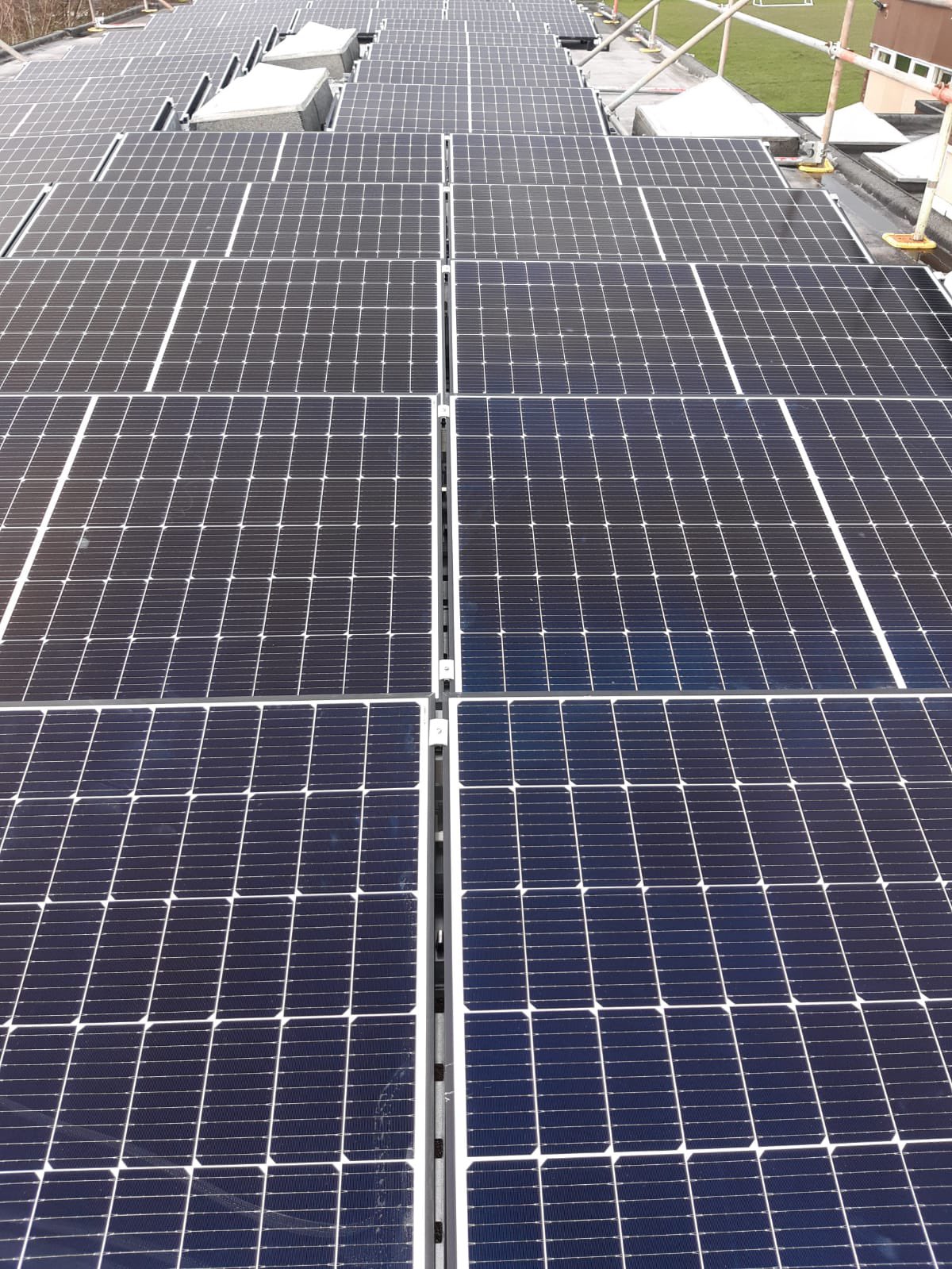 imagesource/twitterIf you can't install solar panels on your own property, then why not join a community solar program? You can buy into shared solar projects and earn savings on your energy bill based on your share of solar production each month. Arcadia offers the first nationwide solar savings program, so go have a look at it!
imagesource/twitterIf you can't install solar panels on your own property, then why not join a community solar program? You can buy into shared solar projects and earn savings on your energy bill based on your share of solar production each month. Arcadia offers the first nationwide solar savings program, so go have a look at it! imagesource/twitterI'm sure I'm probably the only person on this earth that didn't realise this, but events like Coachella are known for their environmentally friendly set ups. Burning Man, Bonnaroo and the Environmental Film Festival are all great festivals too.
imagesource/twitterI'm sure I'm probably the only person on this earth that didn't realise this, but events like Coachella are known for their environmentally friendly set ups. Burning Man, Bonnaroo and the Environmental Film Festival are all great festivals too. imagesource/thepracticalherbalistInstead of taking prescription medicines at the drop of a hat, why not try some holistic remedies. Consider whats actually going into your system, when you're taking those antibiotics that the doctor prescribes you. By using fewer antibiotics in our water system you'll help keep it clean.
imagesource/thepracticalherbalistInstead of taking prescription medicines at the drop of a hat, why not try some holistic remedies. Consider whats actually going into your system, when you're taking those antibiotics that the doctor prescribes you. By using fewer antibiotics in our water system you'll help keep it clean.![Flight-Report on Twitter: "[Airline Review] Flying @LOTPLAirlines 🇵🇱 #B787-9 Premium Economy from #London 🇬🇧 during the #pandemic: Great experience with a spacious seat 💺, IFE📺, and a full hot meal 🍽️ on](https://pbs.twimg.com/media/ExA0kDKVoAALuTE?format=jpg&name=large) imagesource/twitterJust like when you're carpooling, flying economy class spreads out the carbon emissions across the masses. Those flying on private planes will make a larger negative impact - it's always the rich and famous that ruin it for the rest of us isn't it!
imagesource/twitterJust like when you're carpooling, flying economy class spreads out the carbon emissions across the masses. Those flying on private planes will make a larger negative impact - it's always the rich and famous that ruin it for the rest of us isn't it!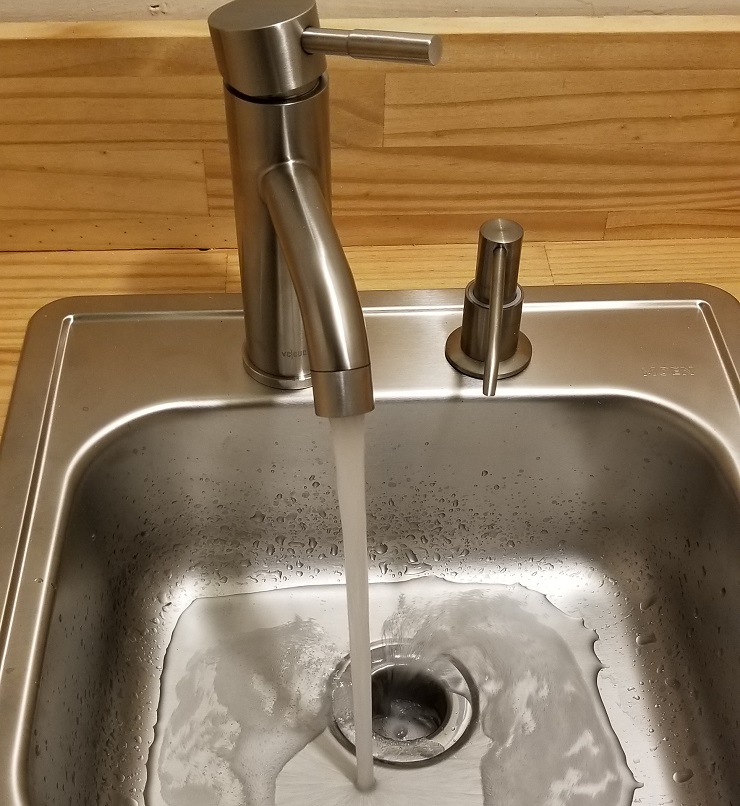 imagesource/buytoolbagsWhen you're brushing your teeth or washing your face, turn the water off. Brushing your teeth can take up to two minutes, that's valuable water that is going to waste, turn the faucet off and it'll save 4 gallons per minute. Thats 200 gallons a week for a family of four.
imagesource/buytoolbagsWhen you're brushing your teeth or washing your face, turn the water off. Brushing your teeth can take up to two minutes, that's valuable water that is going to waste, turn the faucet off and it'll save 4 gallons per minute. Thats 200 gallons a week for a family of four. imagesource/planetforwardWhen you're not in the house, or using your appliances, unplug them. Unplugging your television at night or when you're out at work can seriously reduce your energy bill. Blender, toasters, hairdryer, chargers etc, you name it, unplug it when you're not using them.
imagesource/planetforwardWhen you're not in the house, or using your appliances, unplug them. Unplugging your television at night or when you're out at work can seriously reduce your energy bill. Blender, toasters, hairdryer, chargers etc, you name it, unplug it when you're not using them. imagesource/kitroomCutting down your driving by just 10% can reduce greenhouse gas emissions by 0.2 to 0.8 tonnes per year, depending on your vehicle. Individual driving can be expensive, electric scooters can cut down on your carbon footprint if you're not much of a walker or biker.
imagesource/kitroomCutting down your driving by just 10% can reduce greenhouse gas emissions by 0.2 to 0.8 tonnes per year, depending on your vehicle. Individual driving can be expensive, electric scooters can cut down on your carbon footprint if you're not much of a walker or biker.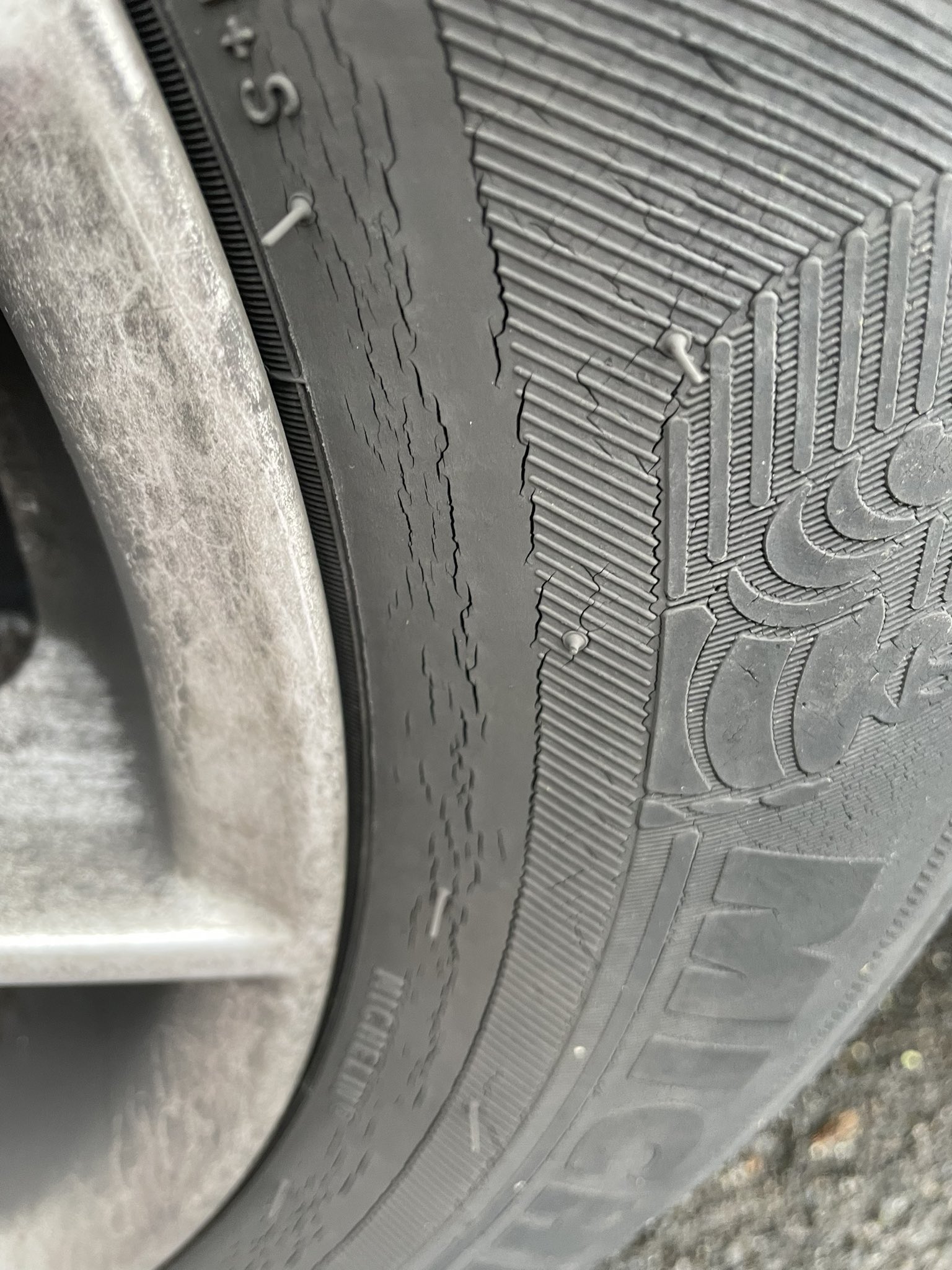 imagesource/twitterEnsuring that your tyres aren't deflated will reduce your gas mileage by up to 3% and it'll get you to your destination faster as well. It's an easy way to reduce your carbon footprint and it'll save you 20 pounds of carbon dioxide out of the atmosphere.
imagesource/twitterEnsuring that your tyres aren't deflated will reduce your gas mileage by up to 3% and it'll get you to your destination faster as well. It's an easy way to reduce your carbon footprint and it'll save you 20 pounds of carbon dioxide out of the atmosphere.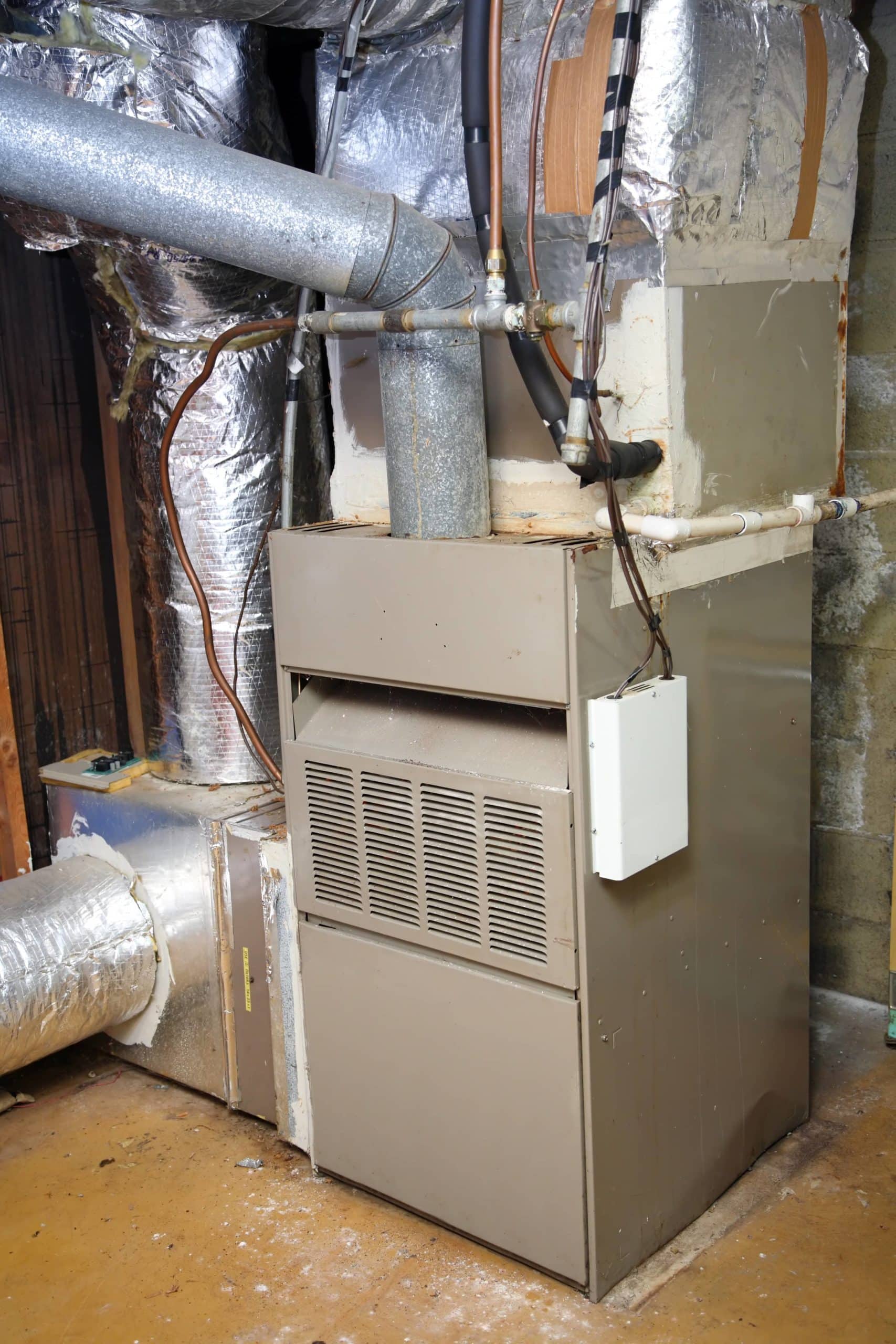
 imagesource/instructablesMake sure that when you're doing your grocery shopping that you use those tote bags, use them as much as you can so you don't have to waste the paper or plastic bags that grocery stores still so often use. If you do use plastic ones, make sure to reuse them.
imagesource/instructablesMake sure that when you're doing your grocery shopping that you use those tote bags, use them as much as you can so you don't have to waste the paper or plastic bags that grocery stores still so often use. If you do use plastic ones, make sure to reuse them. imagesource/mrkitchenfaucetInstall sink and faucet aerators to conserve your water. They're quick and easy to install and it'll reduce your home water consumption by up to 50%. They'll also help reduce the cost of heating the water by 50% as well. A great investment if you ask me!
imagesource/mrkitchenfaucetInstall sink and faucet aerators to conserve your water. They're quick and easy to install and it'll reduce your home water consumption by up to 50%. They'll also help reduce the cost of heating the water by 50% as well. A great investment if you ask me! imagesource/esparesblogWhenever you're doing a washing load of cleaning the dishes in your dishwasher, make sure they're both full when you switch them on. They use a good amount of water, so use them to their fullest potential. Air drying your clothes will also help save energy.
imagesource/esparesblogWhenever you're doing a washing load of cleaning the dishes in your dishwasher, make sure they're both full when you switch them on. They use a good amount of water, so use them to their fullest potential. Air drying your clothes will also help save energy. imagesource/carwowExtra weight in your car decreases the gas mileage you can achieve and with the prices of fuel at the minute, you really don't want to be doing that! Get rid of the junk in your car and it'll drastically improve your gas mileage, meaning reducing your carbon footprint.
imagesource/carwowExtra weight in your car decreases the gas mileage you can achieve and with the prices of fuel at the minute, you really don't want to be doing that! Get rid of the junk in your car and it'll drastically improve your gas mileage, meaning reducing your carbon footprint.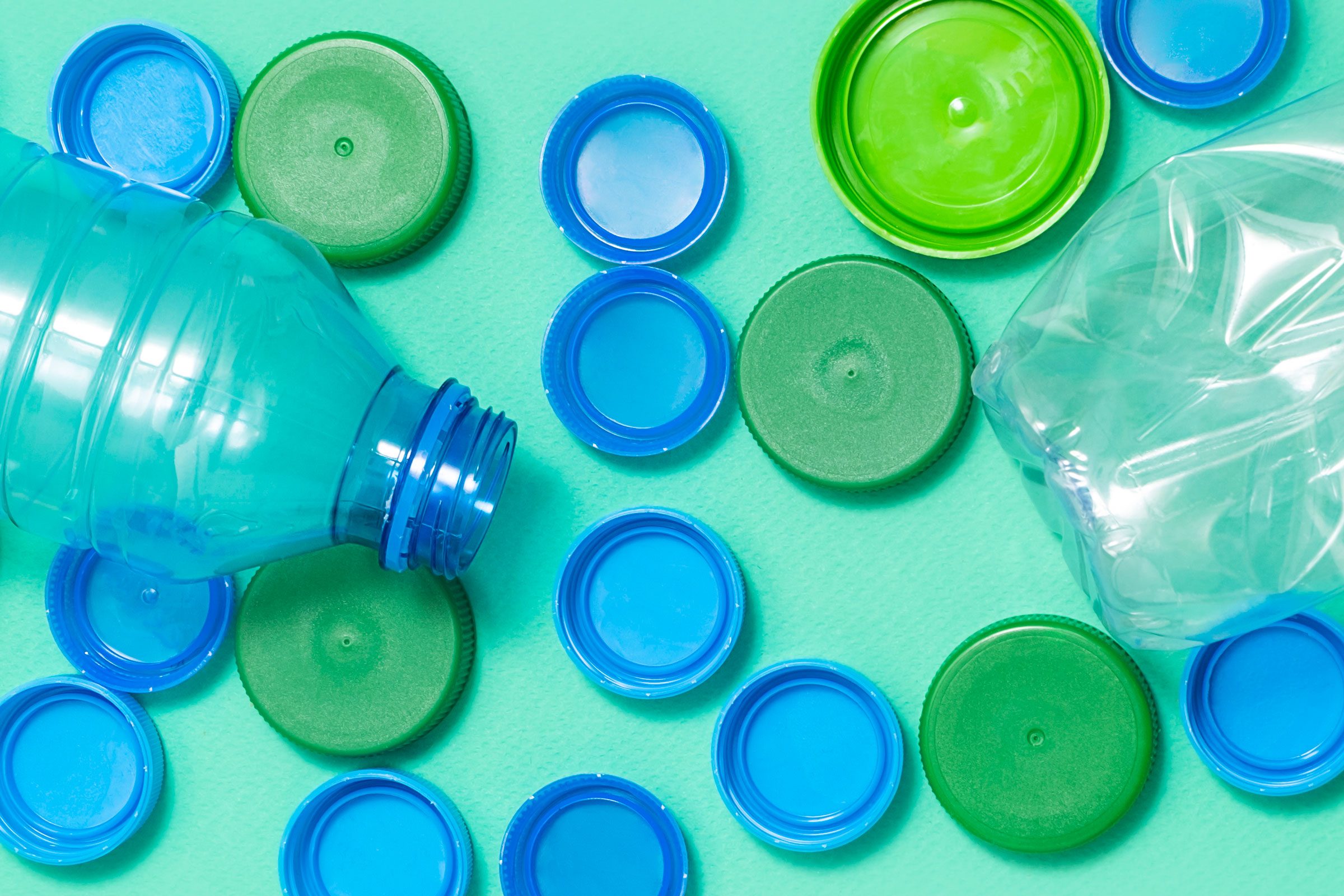 imagesource/readersdigestDid you know that throwing away your bottle caps into the recycling will actually cause more problems for the recycling plant. The caps adds to the energy necessary to transport the recyclables to the recycle plant as they add weight and allow for evaporation.
imagesource/readersdigestDid you know that throwing away your bottle caps into the recycling will actually cause more problems for the recycling plant. The caps adds to the energy necessary to transport the recyclables to the recycle plant as they add weight and allow for evaporation.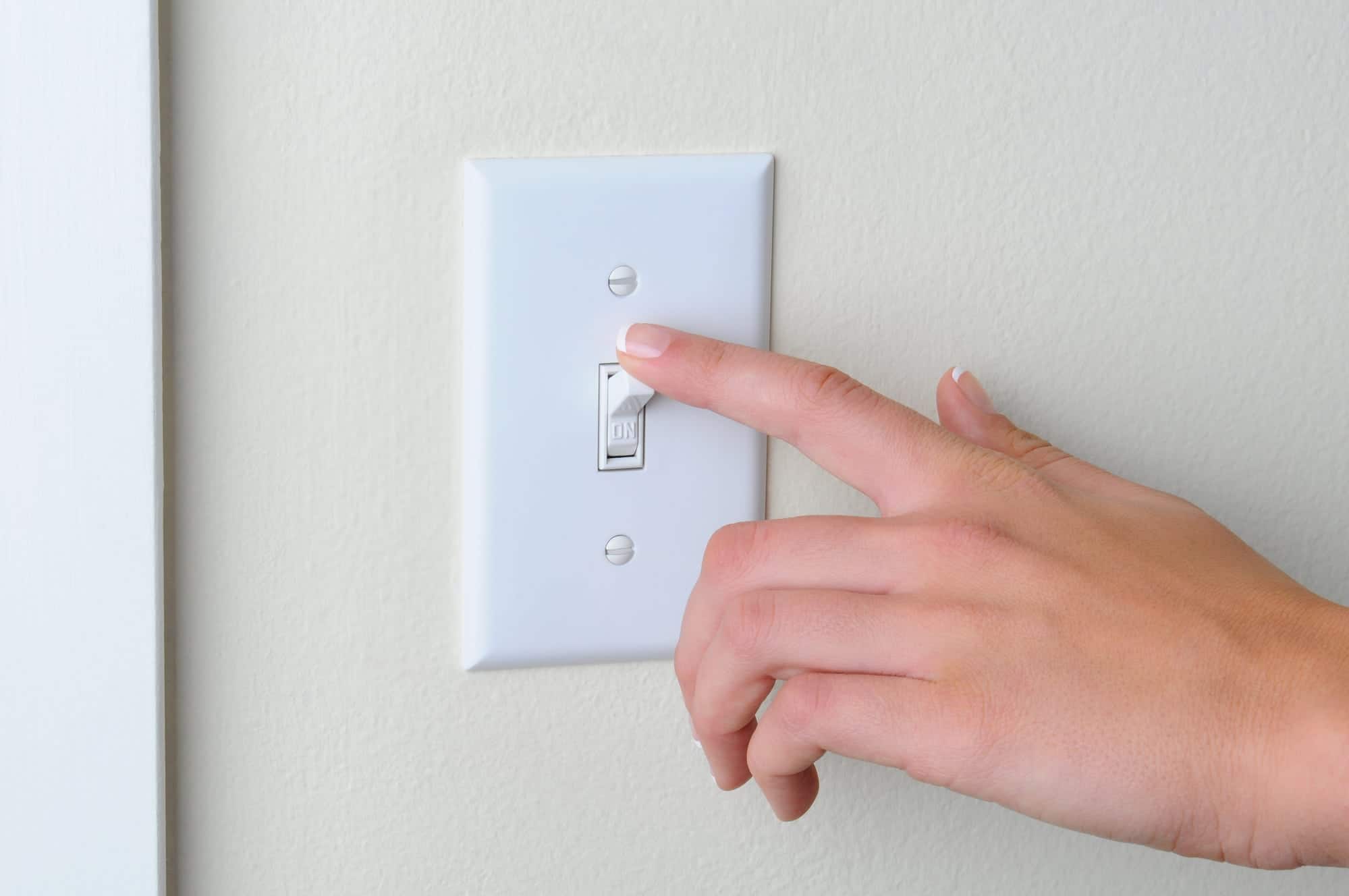 imagesource/yourteenmagazineYou're either one of those people who's pet peeve is leaving the lights on or you're one of those that leaves all the lights on all over the house. 30% of your homes energy usage comes from the lights being on, so turning them off with dramatically reduce your energy consumption.
imagesource/yourteenmagazineYou're either one of those people who's pet peeve is leaving the lights on or you're one of those that leaves all the lights on all over the house. 30% of your homes energy usage comes from the lights being on, so turning them off with dramatically reduce your energy consumption. imagesource/1000logosTry and buy appliances that have the Energy Star logo on the product - this means that your appliance meets or exceeds standard set by the US Department of Energy and the Environmental Protection Agency. They'll save you money and help the environment.
imagesource/1000logosTry and buy appliances that have the Energy Star logo on the product - this means that your appliance meets or exceeds standard set by the US Department of Energy and the Environmental Protection Agency. They'll save you money and help the environment.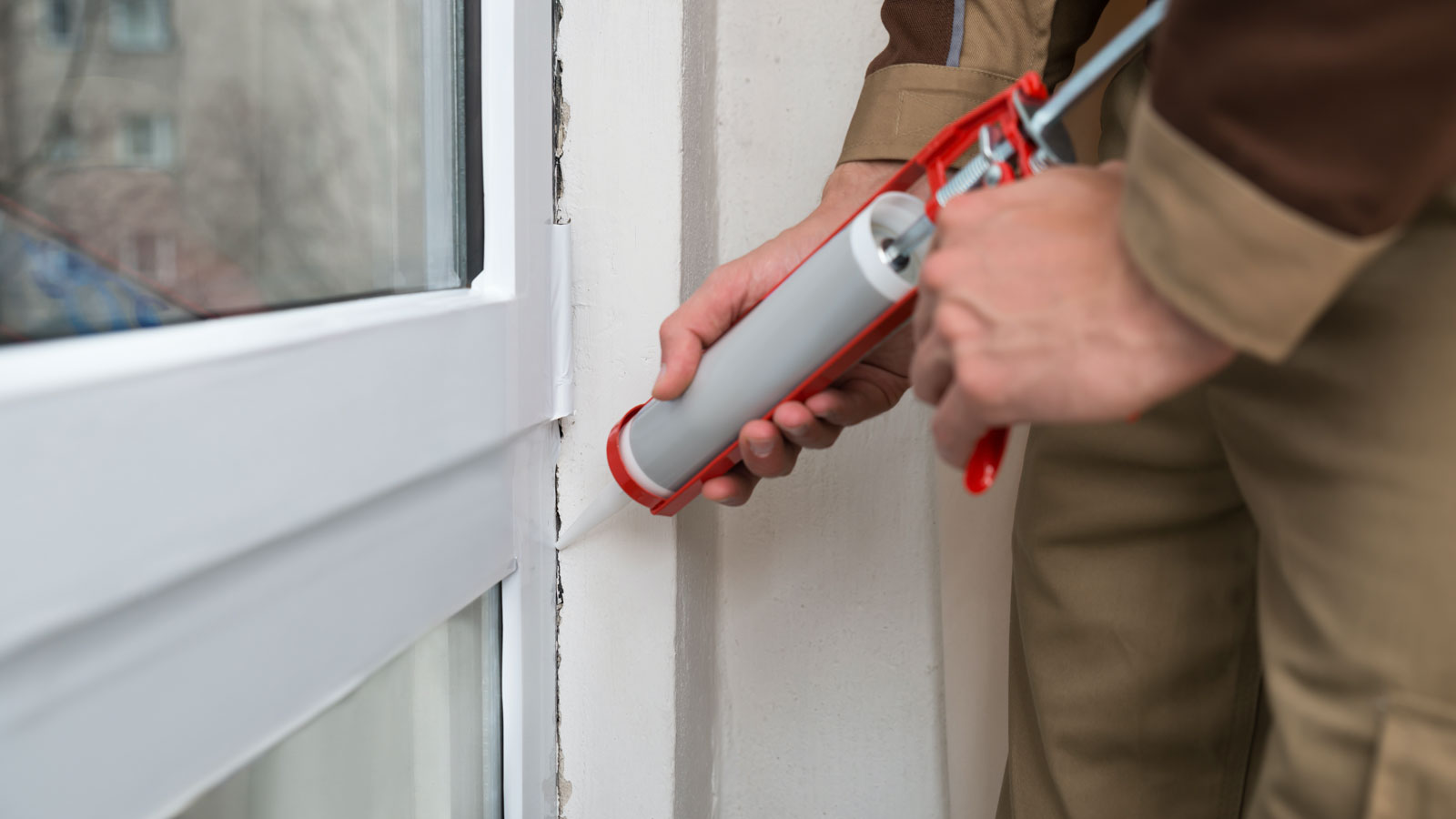 imagesource/efficiencyvermontAir sealing your home will allow you to save on your heating. Closing all potential gaps where heating and cooling can escape is one of the top reasons why your bills will end up so expensive. This will also help reduce noise as well as decrease the amount of energy lost from your home per year.
imagesource/efficiencyvermontAir sealing your home will allow you to save on your heating. Closing all potential gaps where heating and cooling can escape is one of the top reasons why your bills will end up so expensive. This will also help reduce noise as well as decrease the amount of energy lost from your home per year.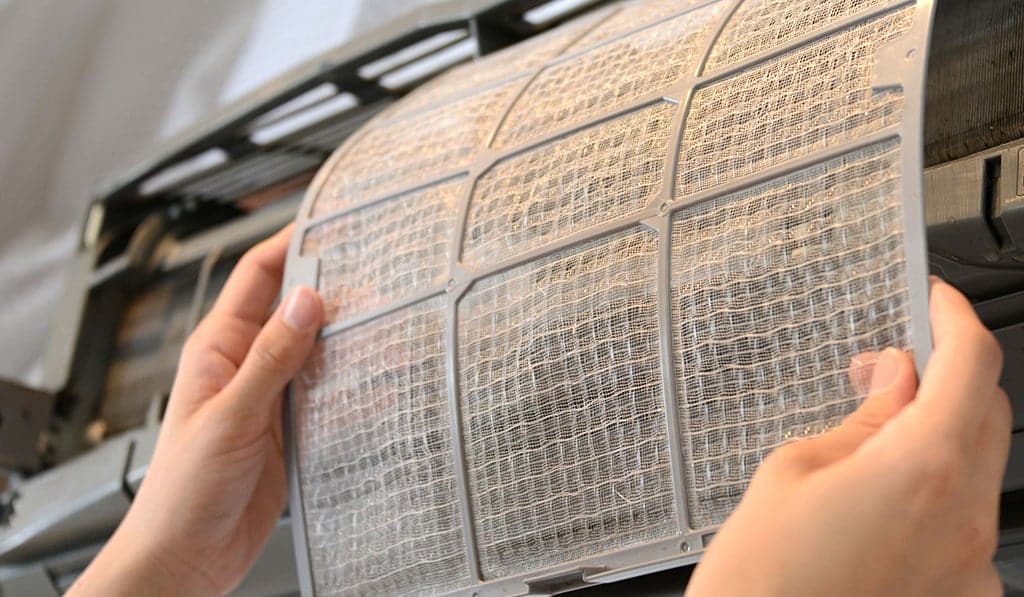 imagesource/hunterconMaintain your air-conditioning and heating systems by changing the filters and keeping the air conditioner coils clean. Energy is lost when air cons and hot air furnaces have to work harder because of dirty filters. This could save you 175 pounds of carbon dioxide per year.
imagesource/hunterconMaintain your air-conditioning and heating systems by changing the filters and keeping the air conditioner coils clean. Energy is lost when air cons and hot air furnaces have to work harder because of dirty filters. This could save you 175 pounds of carbon dioxide per year.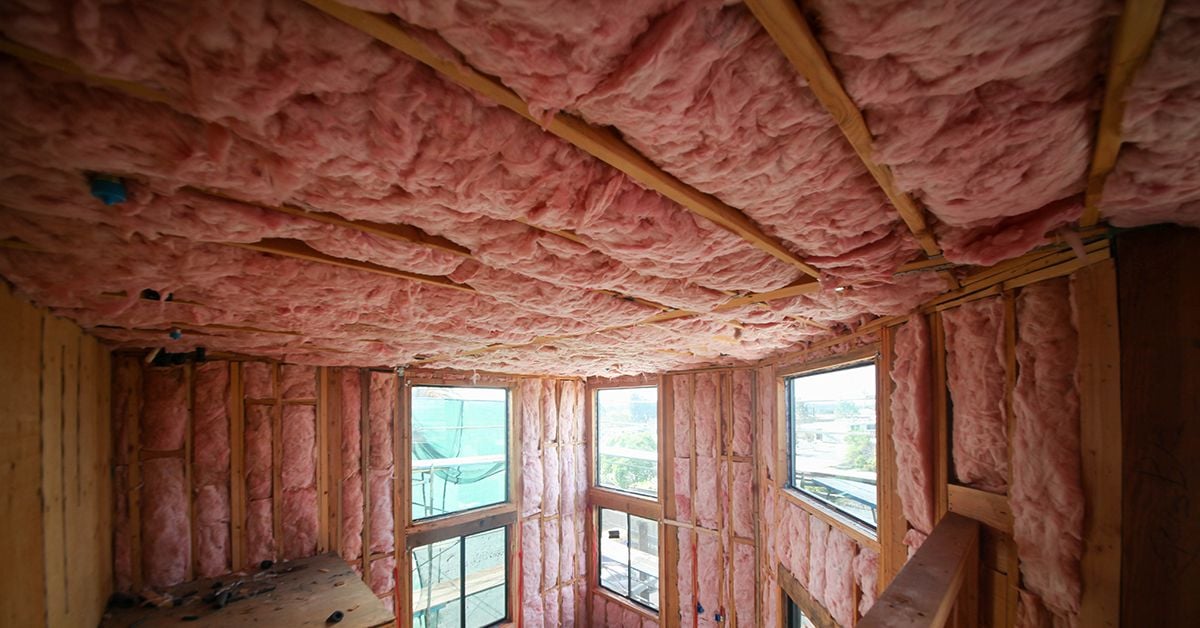 imagesource/ReenergizeCOIf you live in a old house, or a home with high ceilings and you have wooden flooring then use large rugs around your place as inexpensive insulation. This will stop the heating from escaping and also add a little something to your hallways and living areas.
imagesource/ReenergizeCOIf you live in a old house, or a home with high ceilings and you have wooden flooring then use large rugs around your place as inexpensive insulation. This will stop the heating from escaping and also add a little something to your hallways and living areas.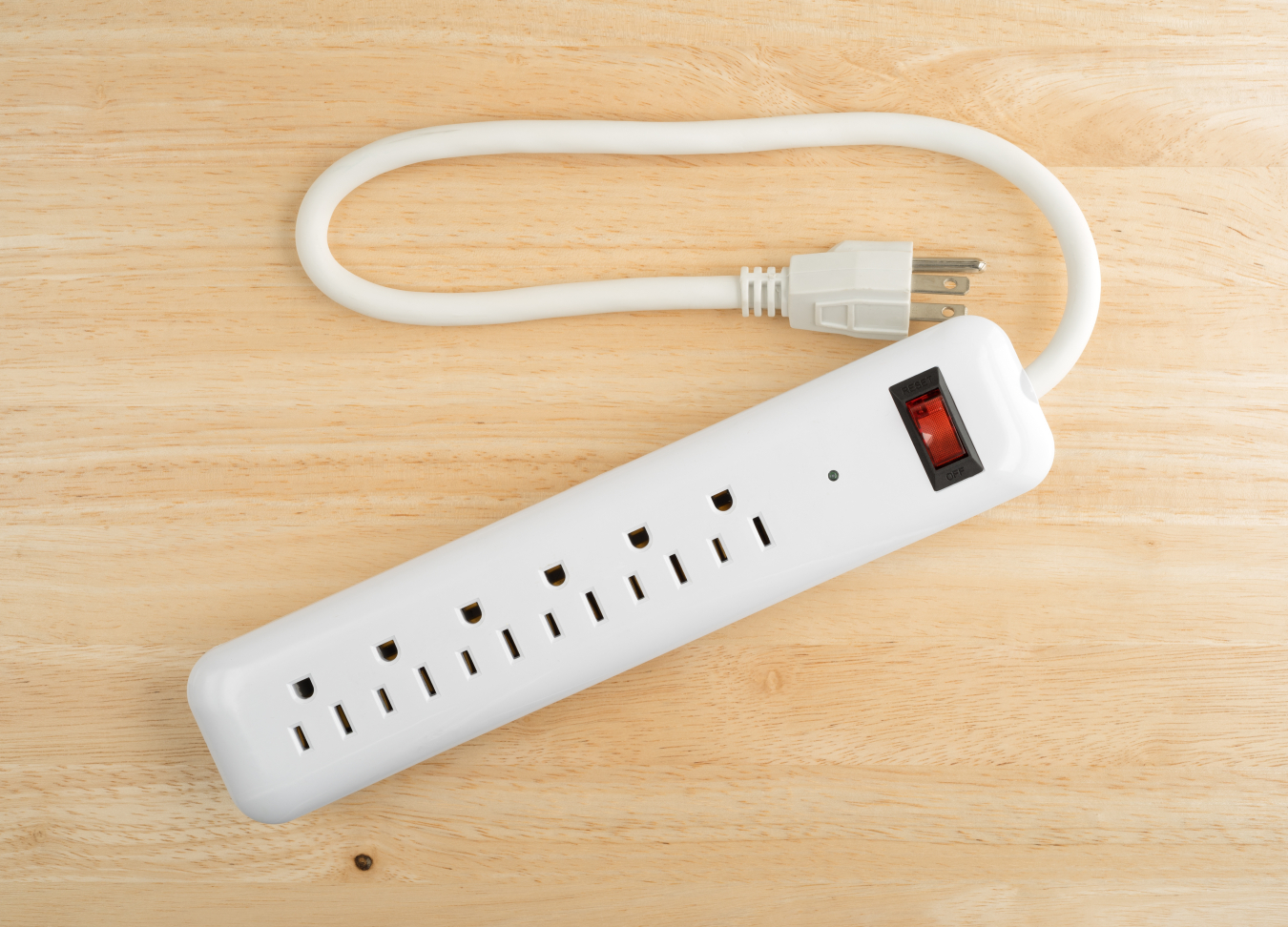 imagesource/departmentofenergyWhen you've got a lot of things plugged in around your home, make life easier for yourself and use a power strip for easy on/off switching of your television, entertainment players, cable boxes etc. Their standby consumption is equivalent of a constantly running 75 or 100 watt light bulb.
imagesource/departmentofenergyWhen you've got a lot of things plugged in around your home, make life easier for yourself and use a power strip for easy on/off switching of your television, entertainment players, cable boxes etc. Their standby consumption is equivalent of a constantly running 75 or 100 watt light bulb. imagesource/how-to-geekMake sure the "Sleep Mode" feature is enabled on your computer, this will allow it to use less power during periods of inactivity. Your computer will also have a "hibernate" mode, which should automatically turn on after your computer has been inactive for 30 minutes or more.
imagesource/how-to-geekMake sure the "Sleep Mode" feature is enabled on your computer, this will allow it to use less power during periods of inactivity. Your computer will also have a "hibernate" mode, which should automatically turn on after your computer has been inactive for 30 minutes or more.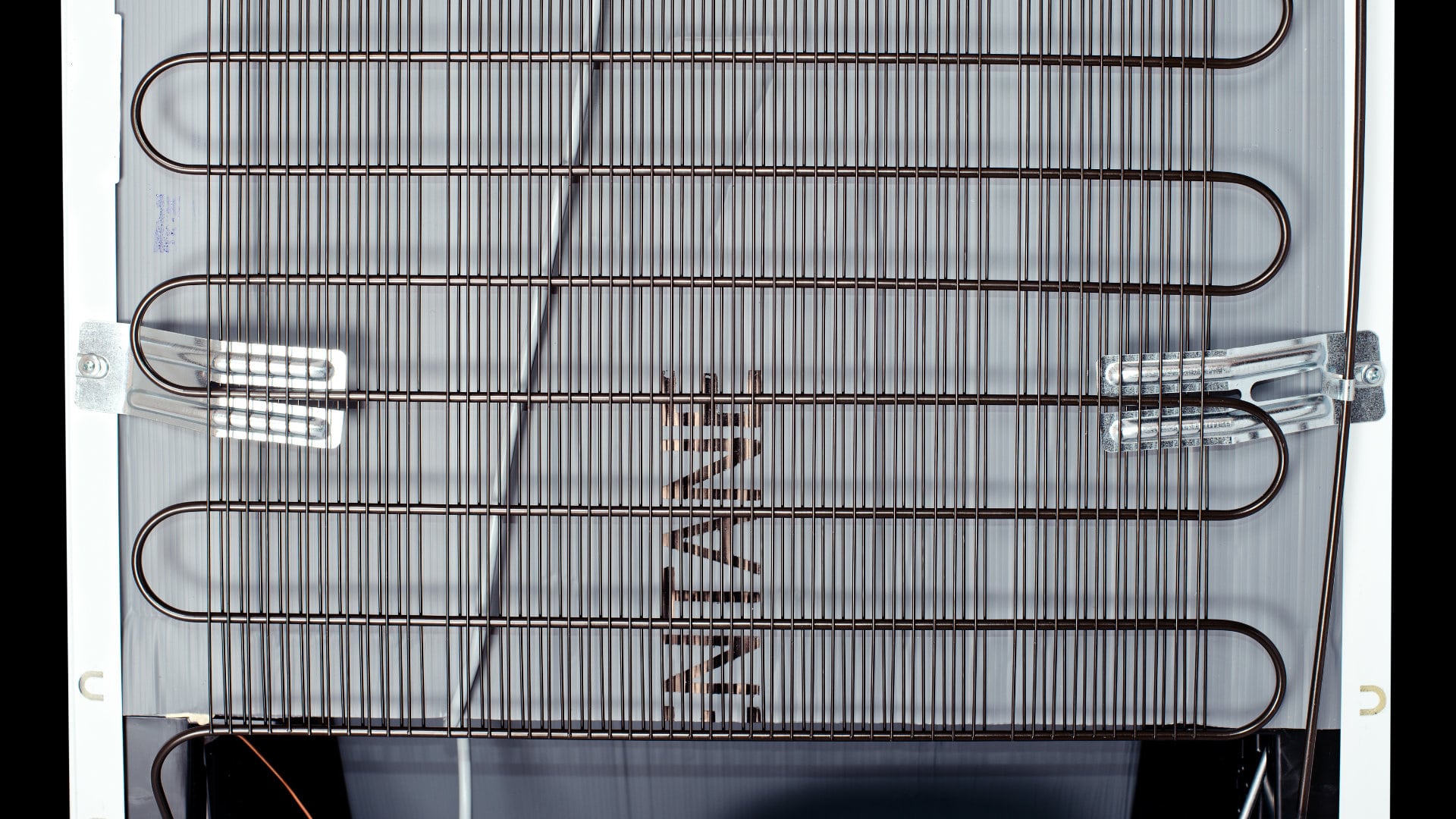 imagesource/flamingoapplianceservicesDusty coils at the back of your fridge or freezer can make your appliances work a whole lot harder. Clearing the dust off and cleaning them every once in a while will improve their efficiency and help save you money & energy in the long run!
imagesource/flamingoapplianceservicesDusty coils at the back of your fridge or freezer can make your appliances work a whole lot harder. Clearing the dust off and cleaning them every once in a while will improve their efficiency and help save you money & energy in the long run! imagesource/wikipediaWhen you're clearing your front yard, side walks, driveway or walk way, you should use a broom rather than clearing them with youse hose. If you do this once a week, that is close to 600 gallons a month - think about all that water you're saving!
imagesource/wikipediaWhen you're clearing your front yard, side walks, driveway or walk way, you should use a broom rather than clearing them with youse hose. If you do this once a week, that is close to 600 gallons a month - think about all that water you're saving! imagesource/sodsolutionsSet your lawn mower blades one notch higher, longer grass means less evaporation which saves you 500 to 1,500 gallons each month. Sometimes it works out better to leave your grass longer - it'll help the environment after all and that's the whole point.
imagesource/sodsolutionsSet your lawn mower blades one notch higher, longer grass means less evaporation which saves you 500 to 1,500 gallons each month. Sometimes it works out better to leave your grass longer - it'll help the environment after all and that's the whole point.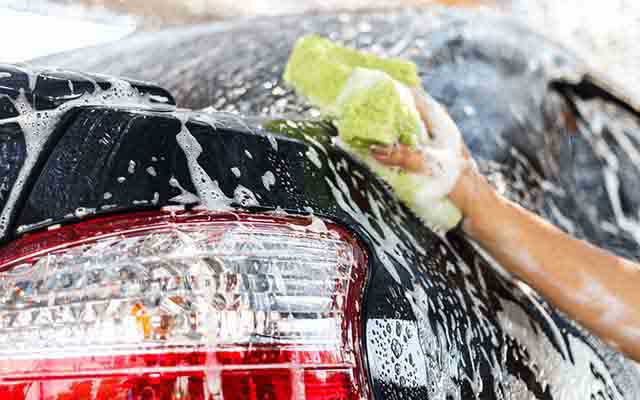 imagesource/AAIf you choose to wash your car, especially in summer, do it on or by your lawn. This will cut your jobs down, it'll clean your car and it'll water your grass saving you on water and energy. Otherwise, take your car to the car wash where they recycle the water.
imagesource/AAIf you choose to wash your car, especially in summer, do it on or by your lawn. This will cut your jobs down, it'll clean your car and it'll water your grass saving you on water and energy. Otherwise, take your car to the car wash where they recycle the water. imagesource/persilWhen you're doing a washer load, unless you're washing really dirty, smelly towels or thick clothing, you really should just wash them on a cold cycle. Rinse and wash clothes using this cycle and it'll reduce the energy needed to heat the water up.
imagesource/persilWhen you're doing a washer load, unless you're washing really dirty, smelly towels or thick clothing, you really should just wash them on a cold cycle. Rinse and wash clothes using this cycle and it'll reduce the energy needed to heat the water up.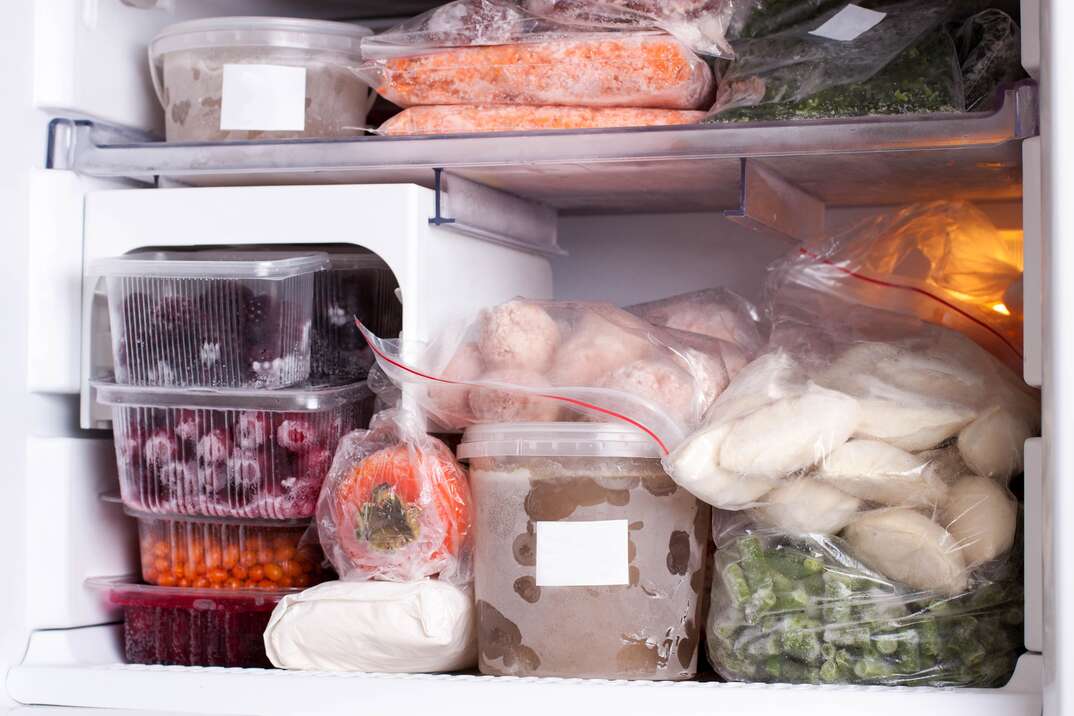
 imagesource/bobvilaTry to keep your freezer full at all times, shove any bread that you won't eat in one go, bottles of alcohol or water. This will keep the cold air from escaping your freezer whenever you open the door. It'll keep your kitchen warmer and save on bills.
imagesource/bobvilaTry to keep your freezer full at all times, shove any bread that you won't eat in one go, bottles of alcohol or water. This will keep the cold air from escaping your freezer whenever you open the door. It'll keep your kitchen warmer and save on bills. imagesource/wikipediaPressure cookers and microwaves should be used as much as possible over your standard oven. Pressure cookers cut time by 66%, while microwaves use less than half the energy than your normal oven. Use them whenever you can really.
imagesource/wikipediaPressure cookers and microwaves should be used as much as possible over your standard oven. Pressure cookers cut time by 66%, while microwaves use less than half the energy than your normal oven. Use them whenever you can really.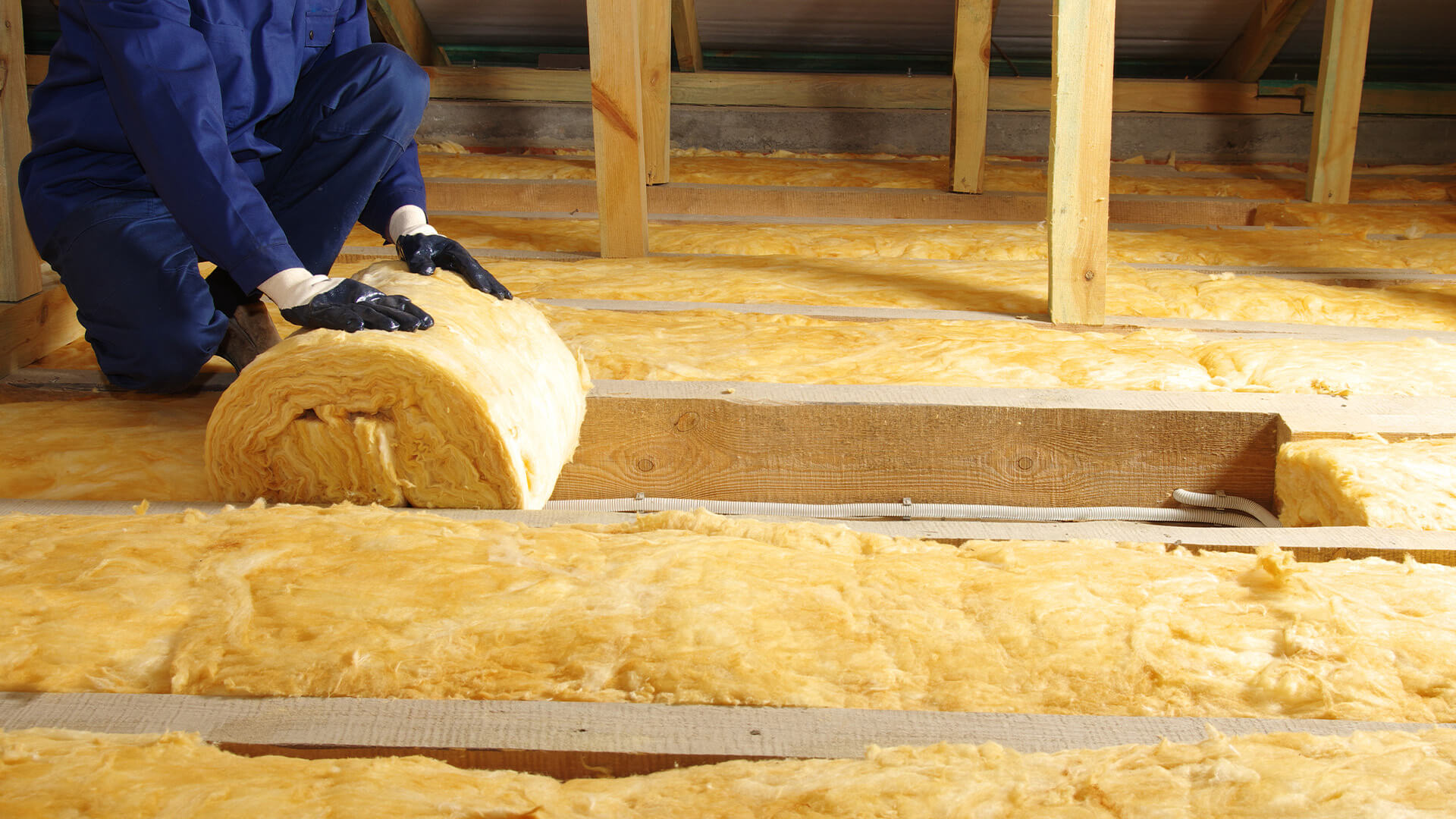 imagesource/buildmagazineMake sure to get your ducts checked regularly, as well as your attic and insulation around the house. It's very important and will help save a lot of money on your heating during the winter months. Just ask an expert who can help improve your heating and cooling costs.
imagesource/buildmagazineMake sure to get your ducts checked regularly, as well as your attic and insulation around the house. It's very important and will help save a lot of money on your heating during the winter months. Just ask an expert who can help improve your heating and cooling costs. imagesource/Most of us just throw our yard clippings into the bin after mowing the lawn, but what a lot of people don't know is that you can put them to good use. Mulching shredded wood, old leaves and yard clippings can prevent weed growth, help retain water and add nutrients back into the soil.
imagesource/Most of us just throw our yard clippings into the bin after mowing the lawn, but what a lot of people don't know is that you can put them to good use. Mulching shredded wood, old leaves and yard clippings can prevent weed growth, help retain water and add nutrients back into the soil. imagesource/economyofbrightonPaper products are widely used in todays society but we cannot forget that paper is is made from one of the most valuable resources on the planet. GreenLine Paper Company is one of the leading recycled paper distributors in the USA.
imagesource/economyofbrightonPaper products are widely used in todays society but we cannot forget that paper is is made from one of the most valuable resources on the planet. GreenLine Paper Company is one of the leading recycled paper distributors in the USA.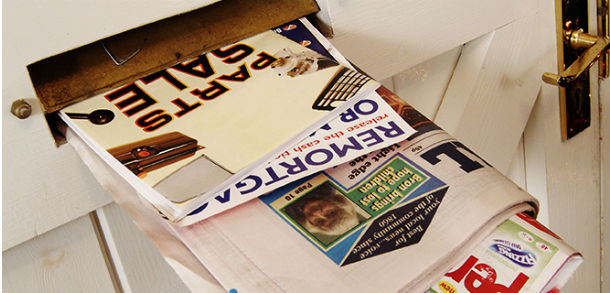 imagesource/loveessexFamilies get letter after letter after letter through the letterbox and most of the time, they don't even read one of them. Make sure to recycle them and don't just throw them away or contact your local recycling center and ask them for any tips on recycling junk mail.
imagesource/loveessexFamilies get letter after letter after letter through the letterbox and most of the time, they don't even read one of them. Make sure to recycle them and don't just throw them away or contact your local recycling center and ask them for any tips on recycling junk mail.